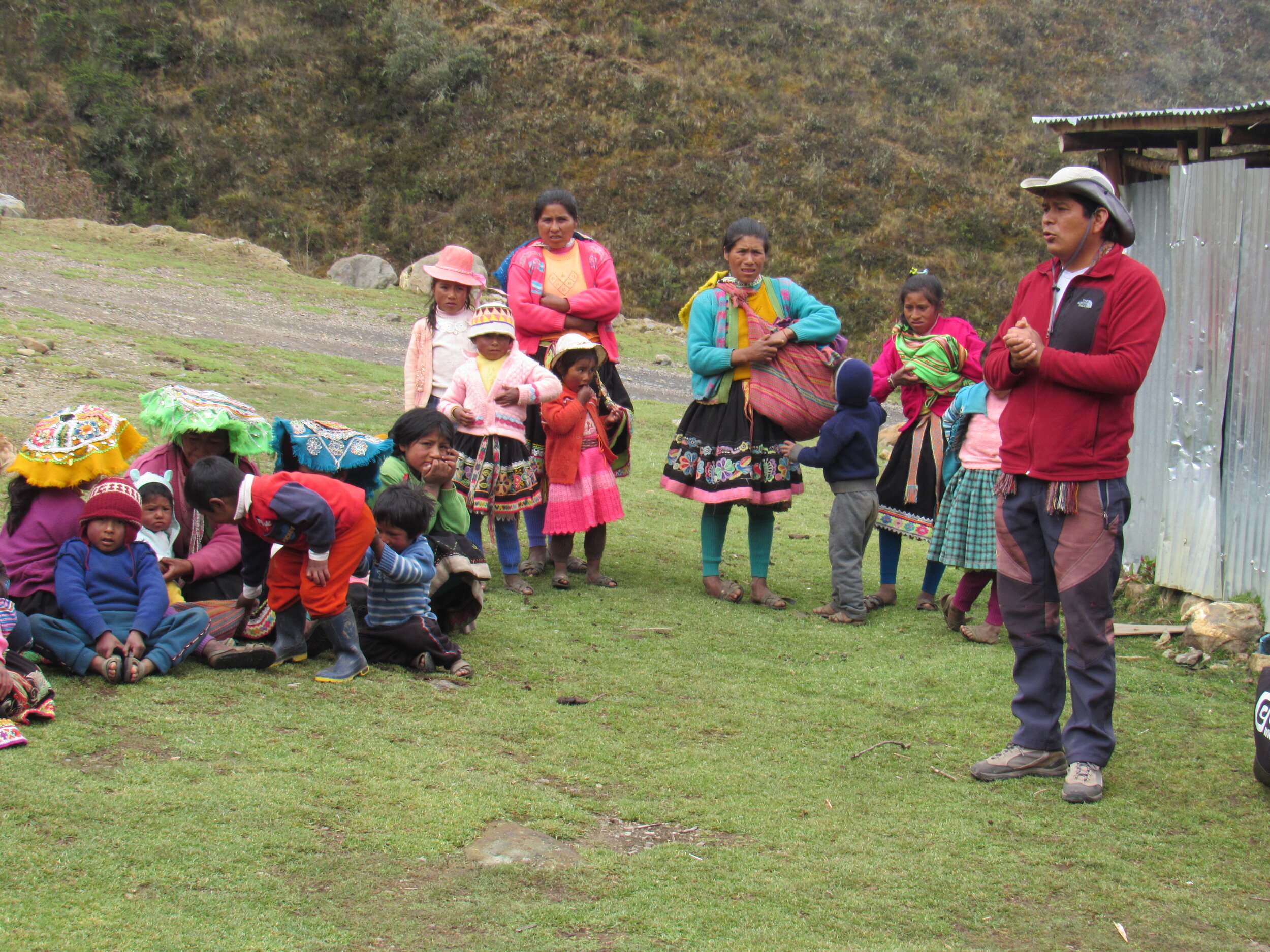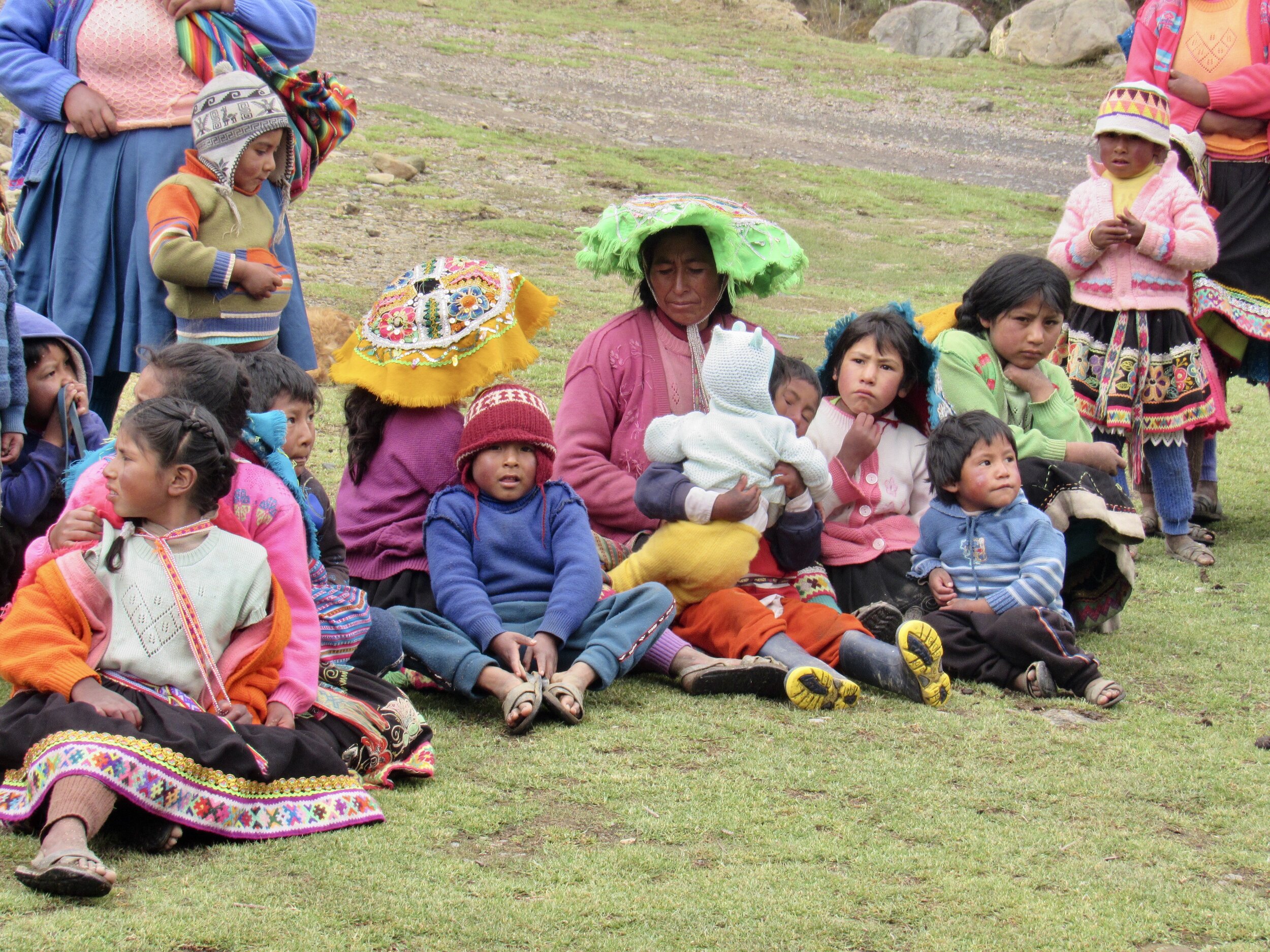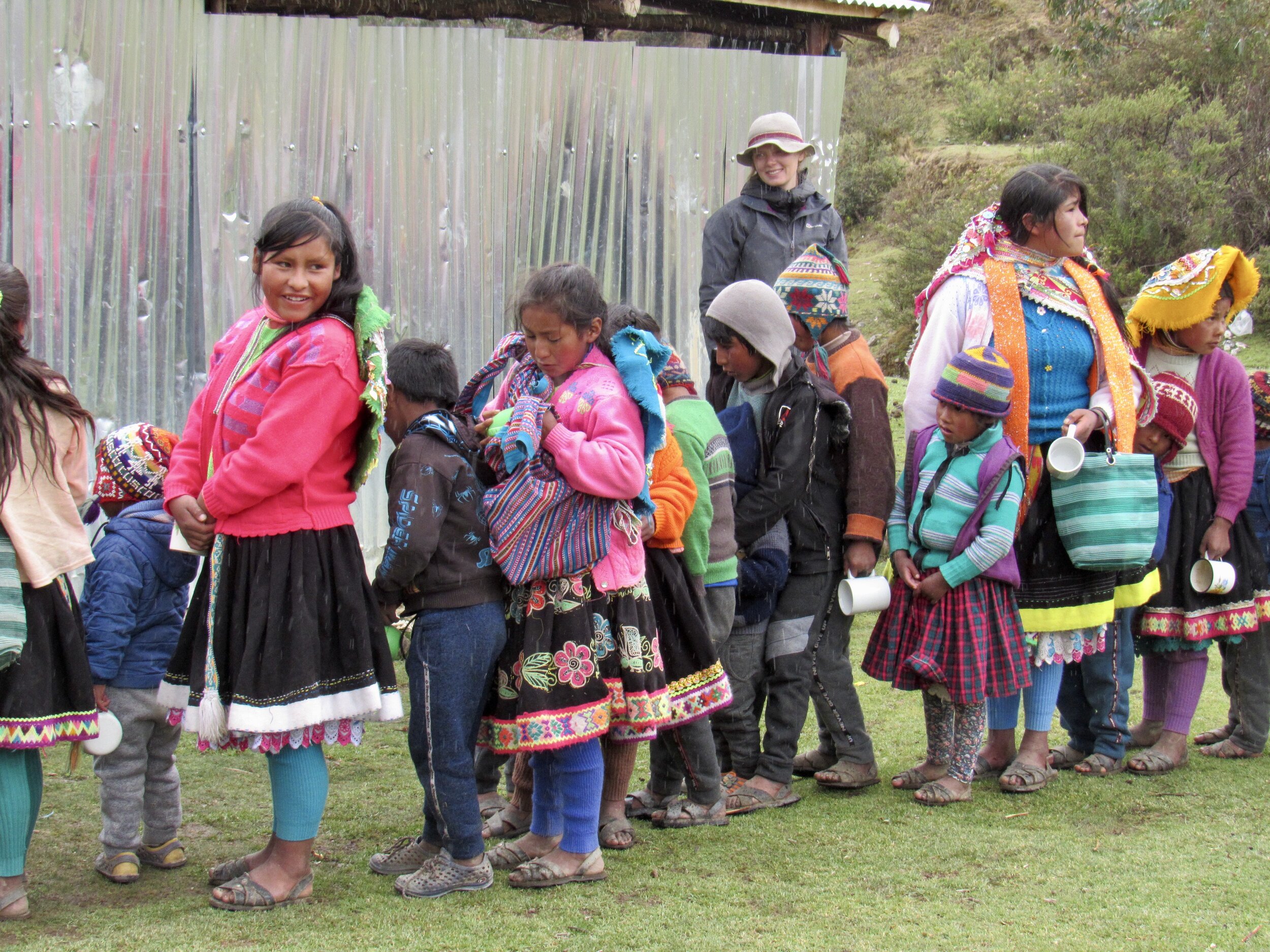Microcuenca Ccarampa Chaiña
I’m so excited that this is our first chocolatada! We went to see families from five “microcuenca” in the mountains about two hours from Calca. We have children’s clothes, 5kg bags of rice, vegetable oil and all of the ingredients for the traditional chocolatada. I’ve never before made hot chocolate in the kind of quantity that takes ten liters of milk, four kilos of pure cacao, two kilos of sugar, a cinnamon stick about two feet long and a whole cup of cloves. The communities have been instructed to have a huge pot of boiling water ready when we arrive and for everybody to bring their own cup.
Not only does asking people to bring their own cup save us from buying and making trash of hundreds of paper cups, it’s probably also better in terms of minimizing possible Covid spread. I’m always worried about the possibility of taking the virus from Cusco, where we have thousands of cases, to these isolated mountain communities that don’t have any. As I’ve written before, part of my worry is the actual virus spread, and part of my worry is that these communities don’t have any access to healthcare. They don’t have doctors or nurses or clinics or hospitals or even pharmacies. Many of them don’t have electricity or plumbing in their one room adobe houses. I try not to dwell on how devastating it would be.
Instead, I’m congratulating Henry & Auqui for finding the solution to our last logistics problem: the milk. We bought 16 kilos of pure cacao, 50 kilos of sugar, a kilo of giant cinnamon sticks and a kilo of cloves for the first three, maybe four chocolatadas. I didn’t want to buy dozens of 1 liter tetra paks of ultra-pasturized milk and certainly not cans of condensed milk. For Henry & Auqui to find a dairy who will sell us fresh milk solves all of those problems. We’ll transport the milk in reusable buckets, so there is no waste. Fresh milk is also much more nutritious and we’re supporting a local farmer. Win, win, win!
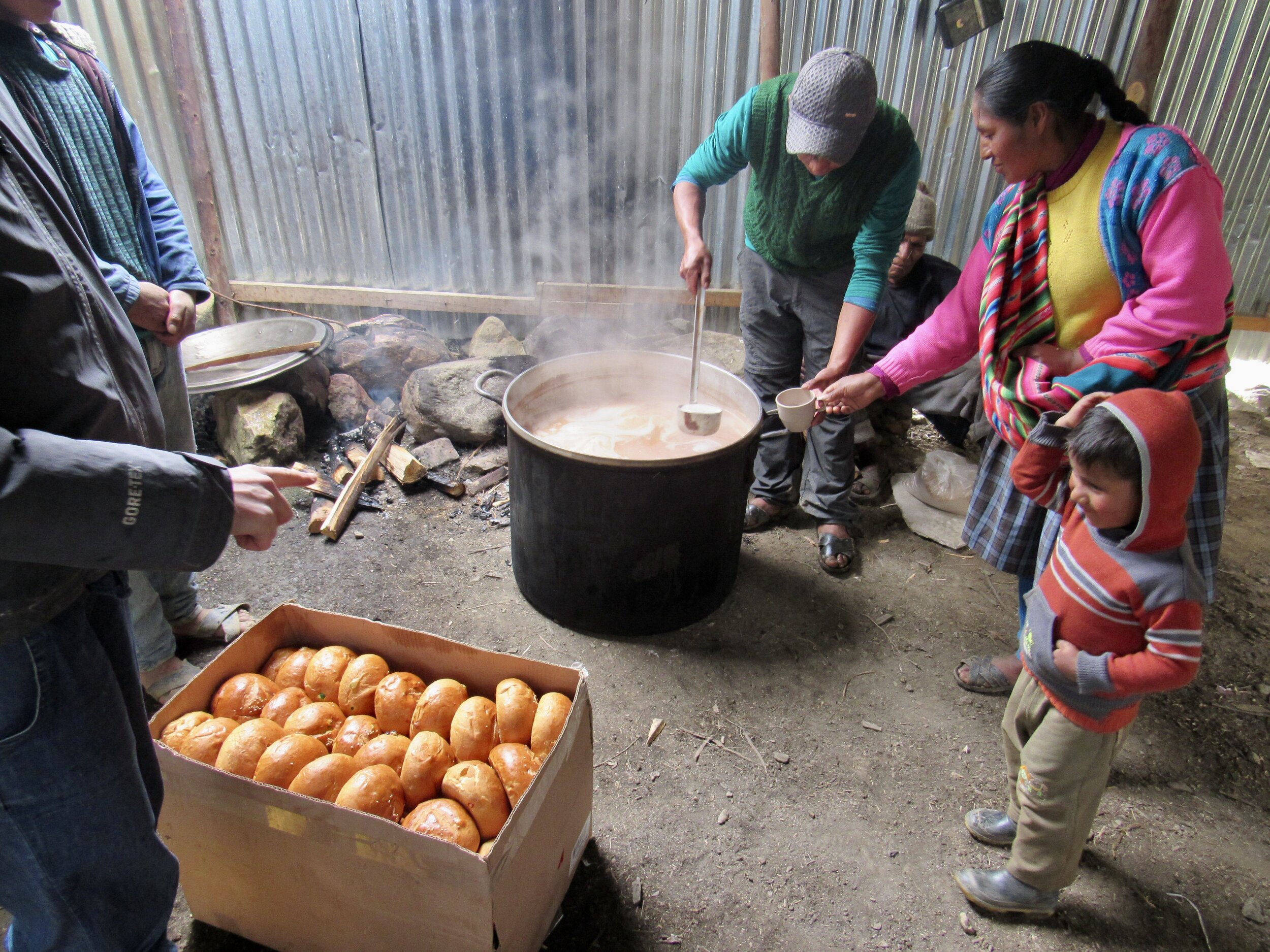
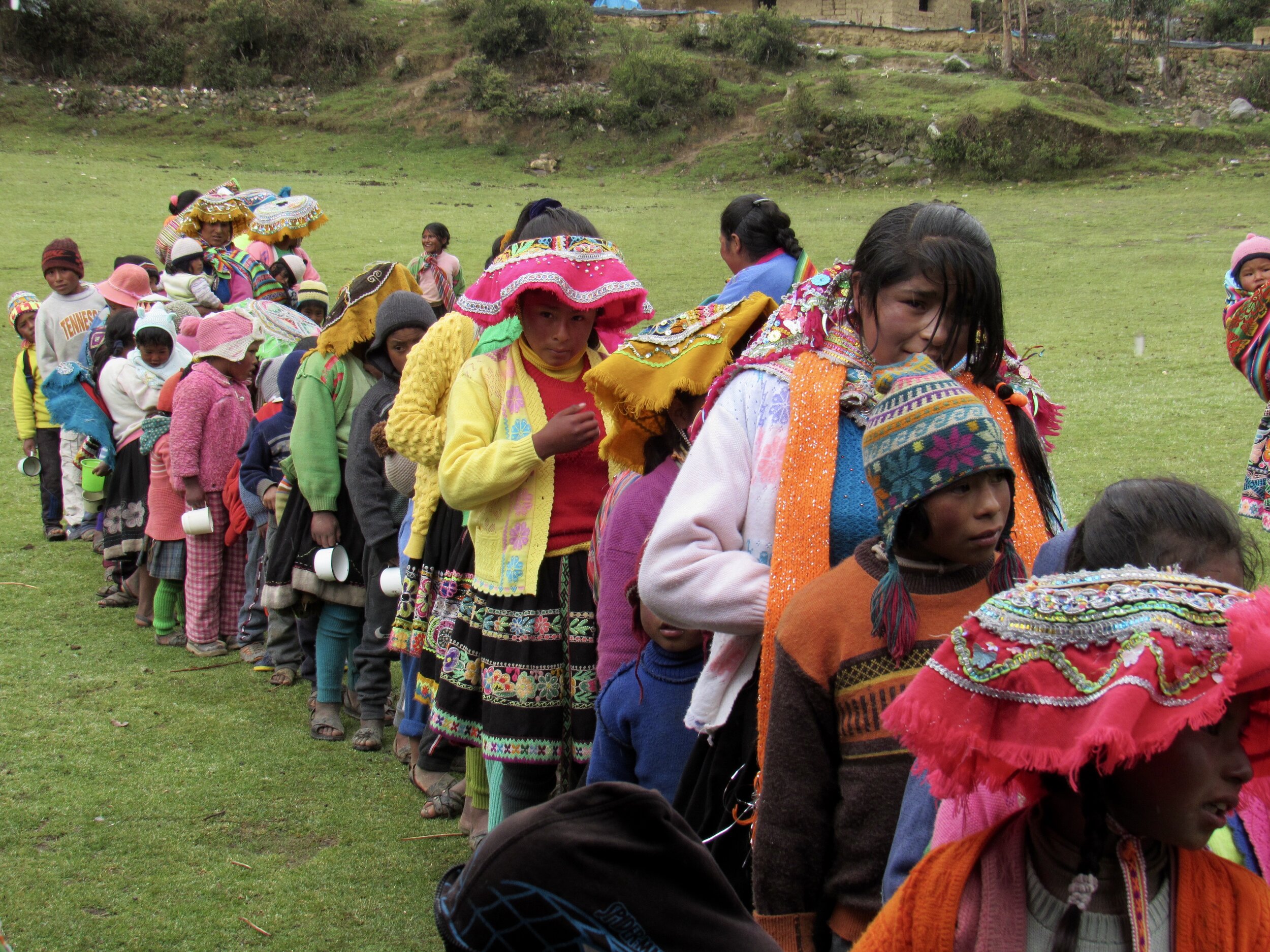
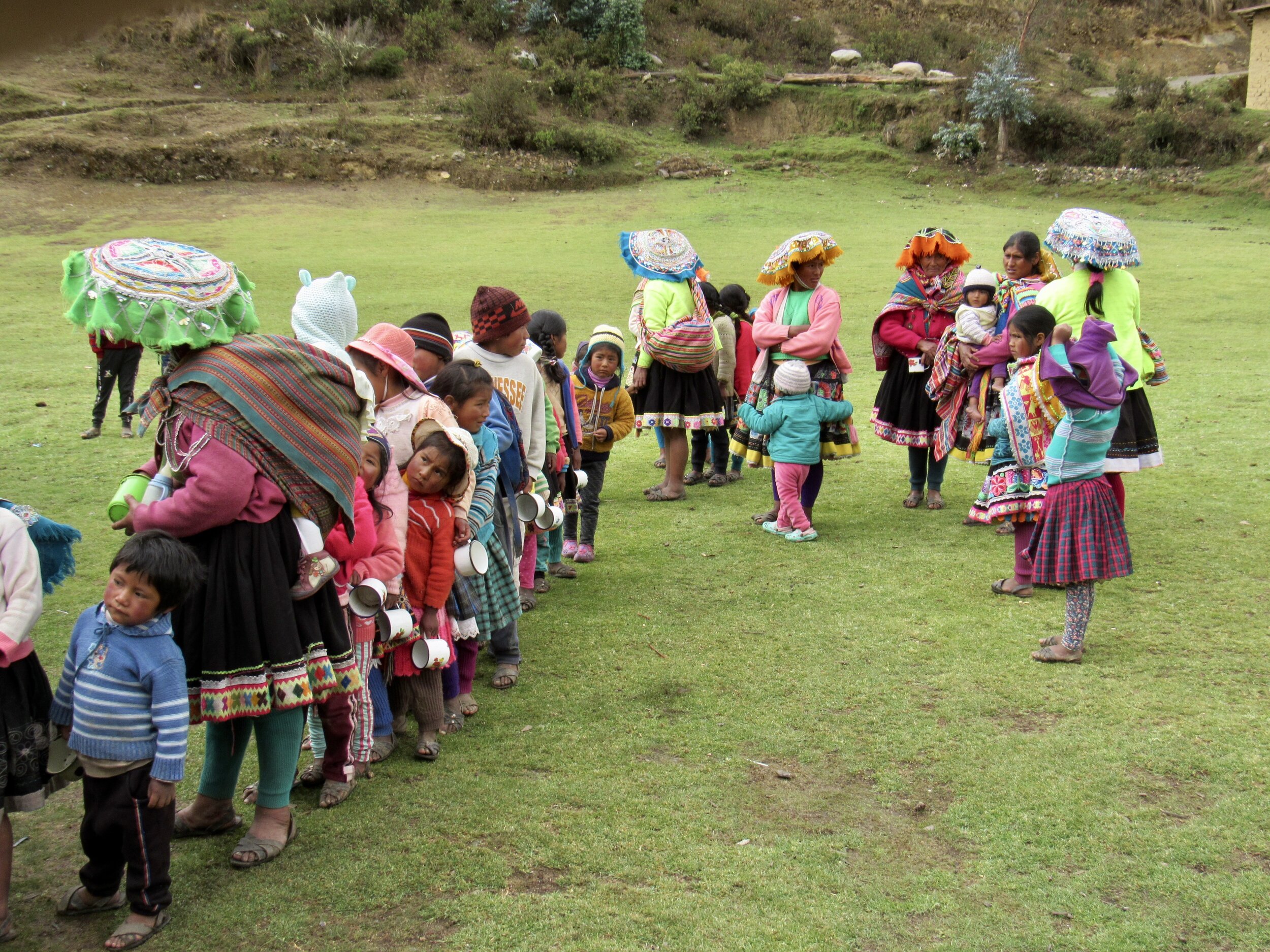
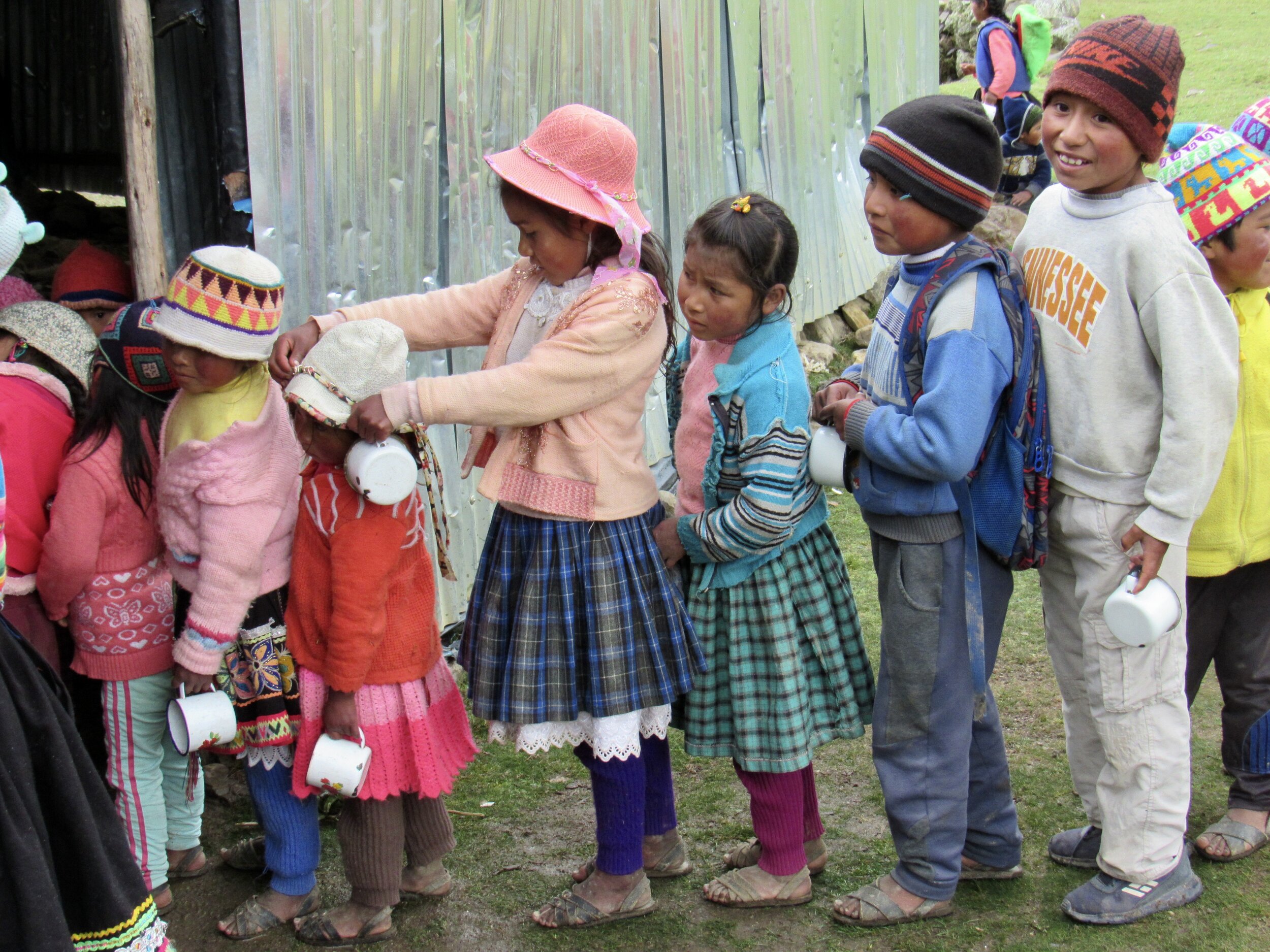
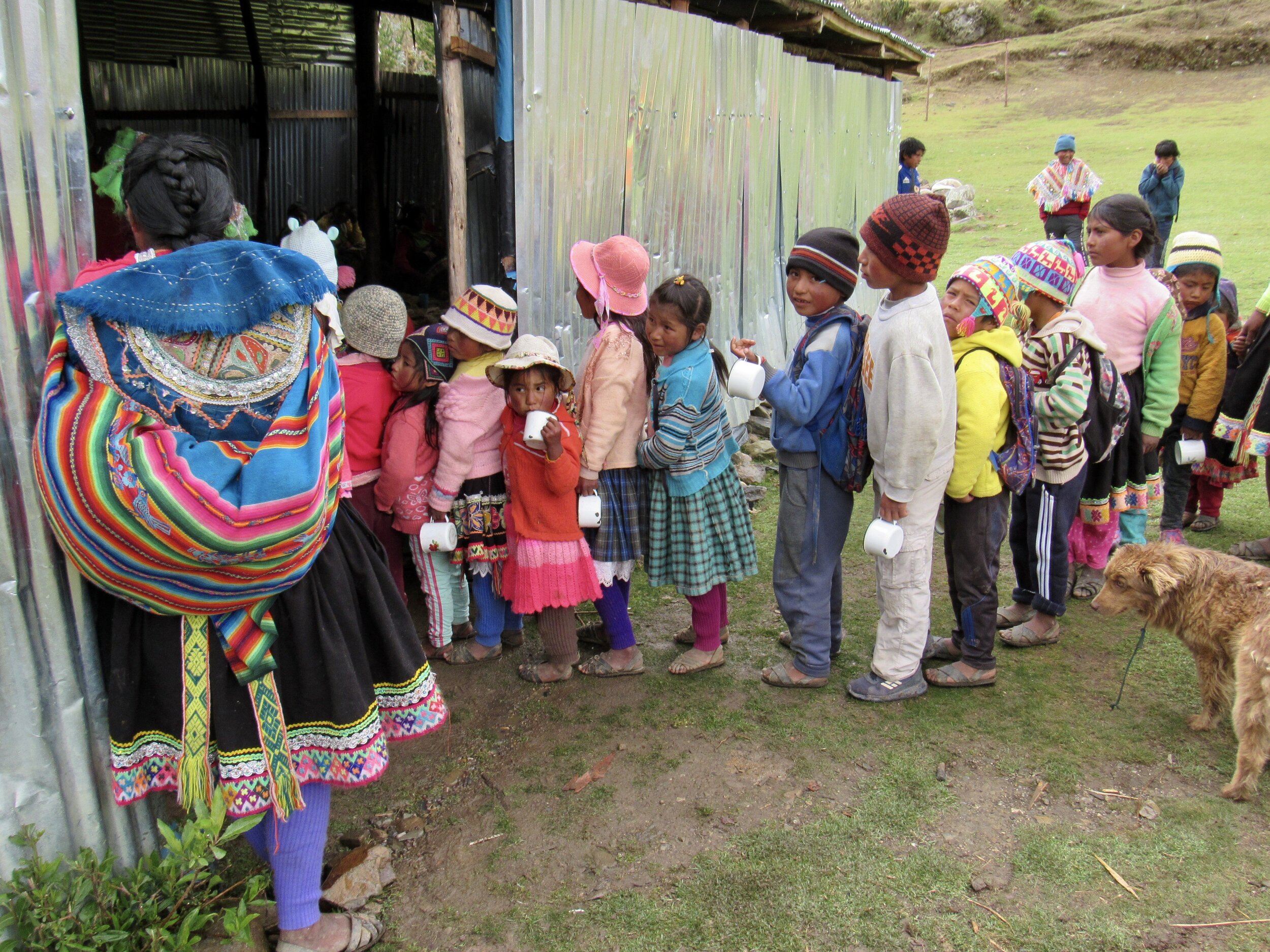
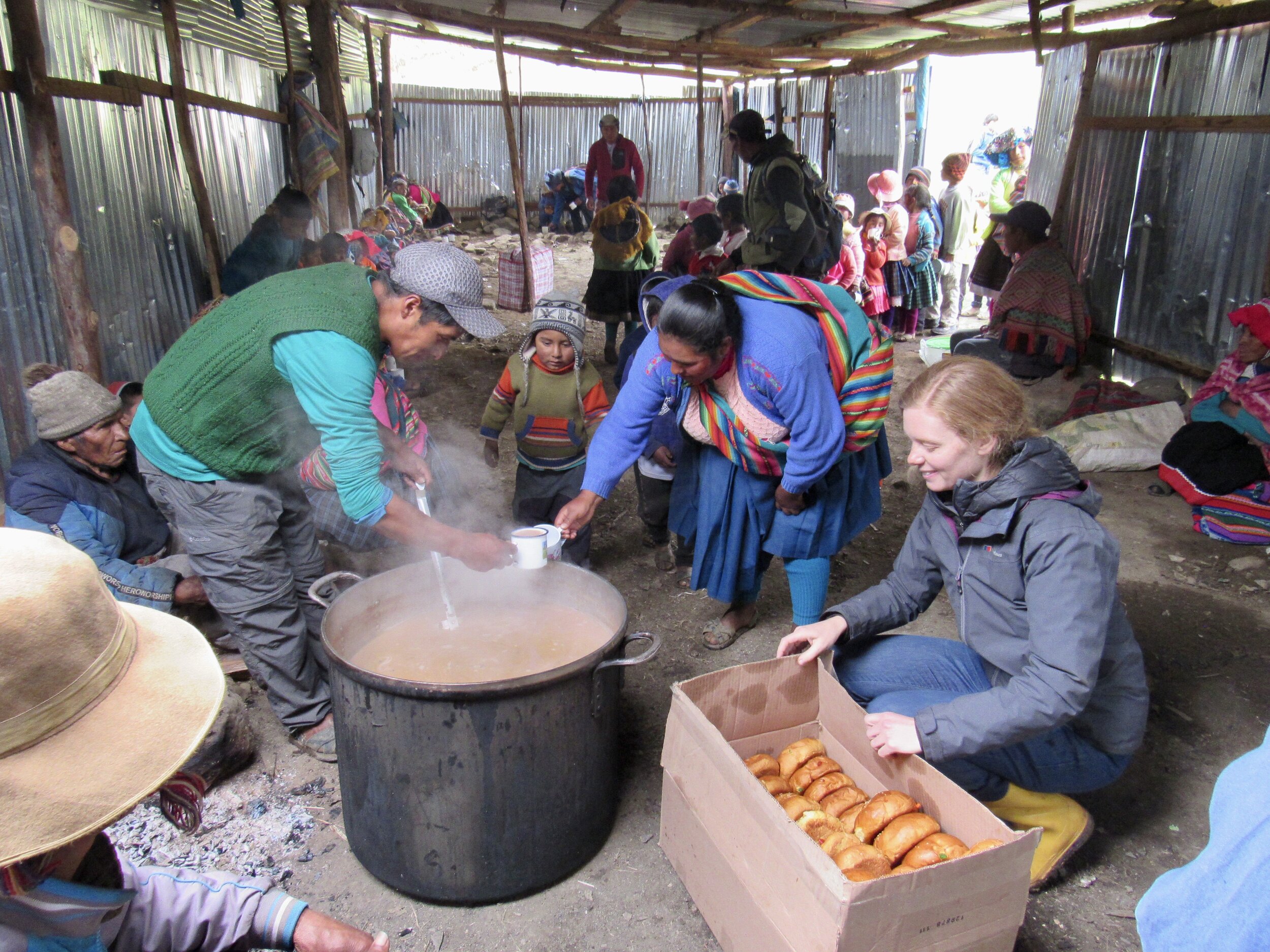
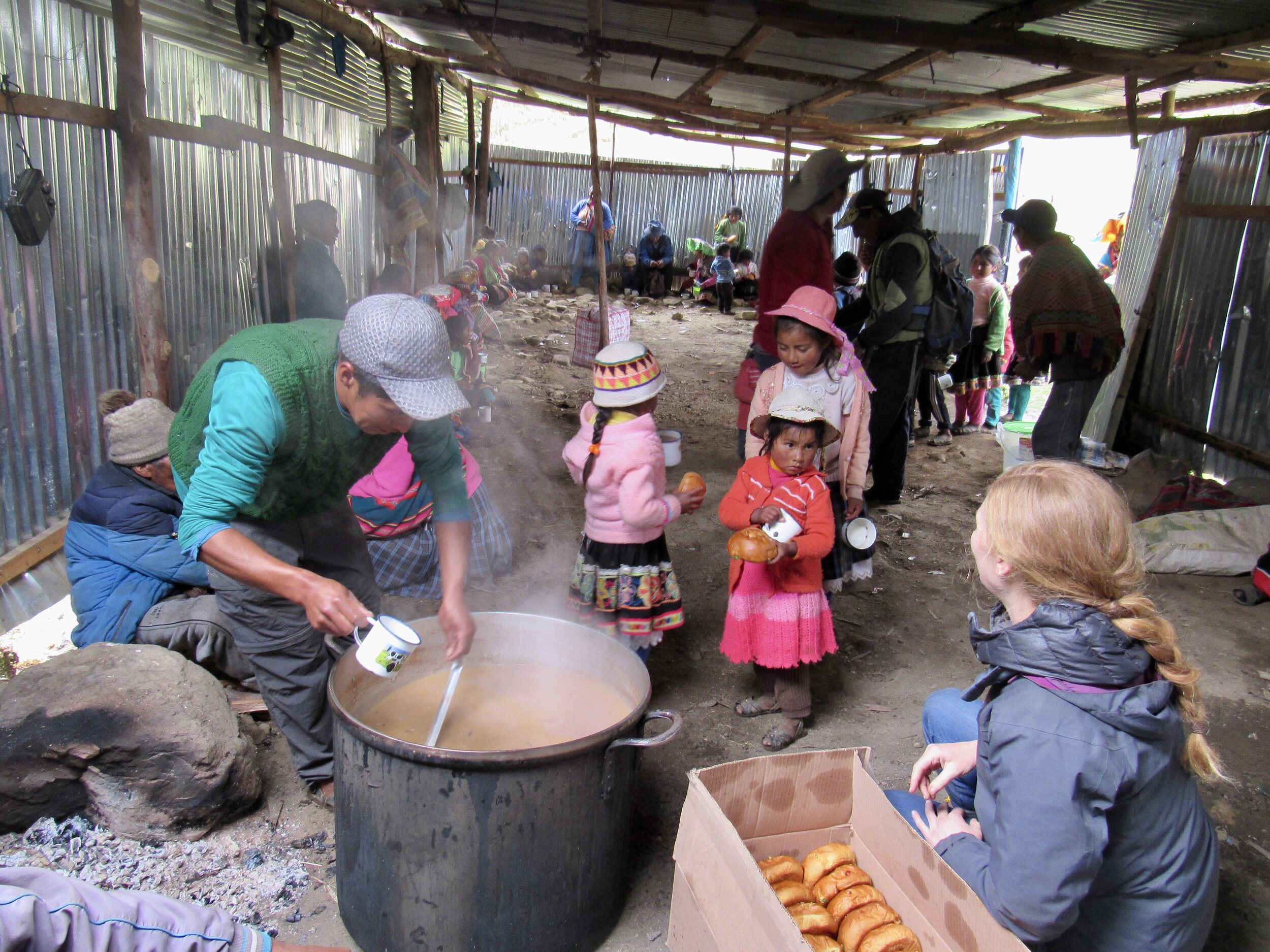
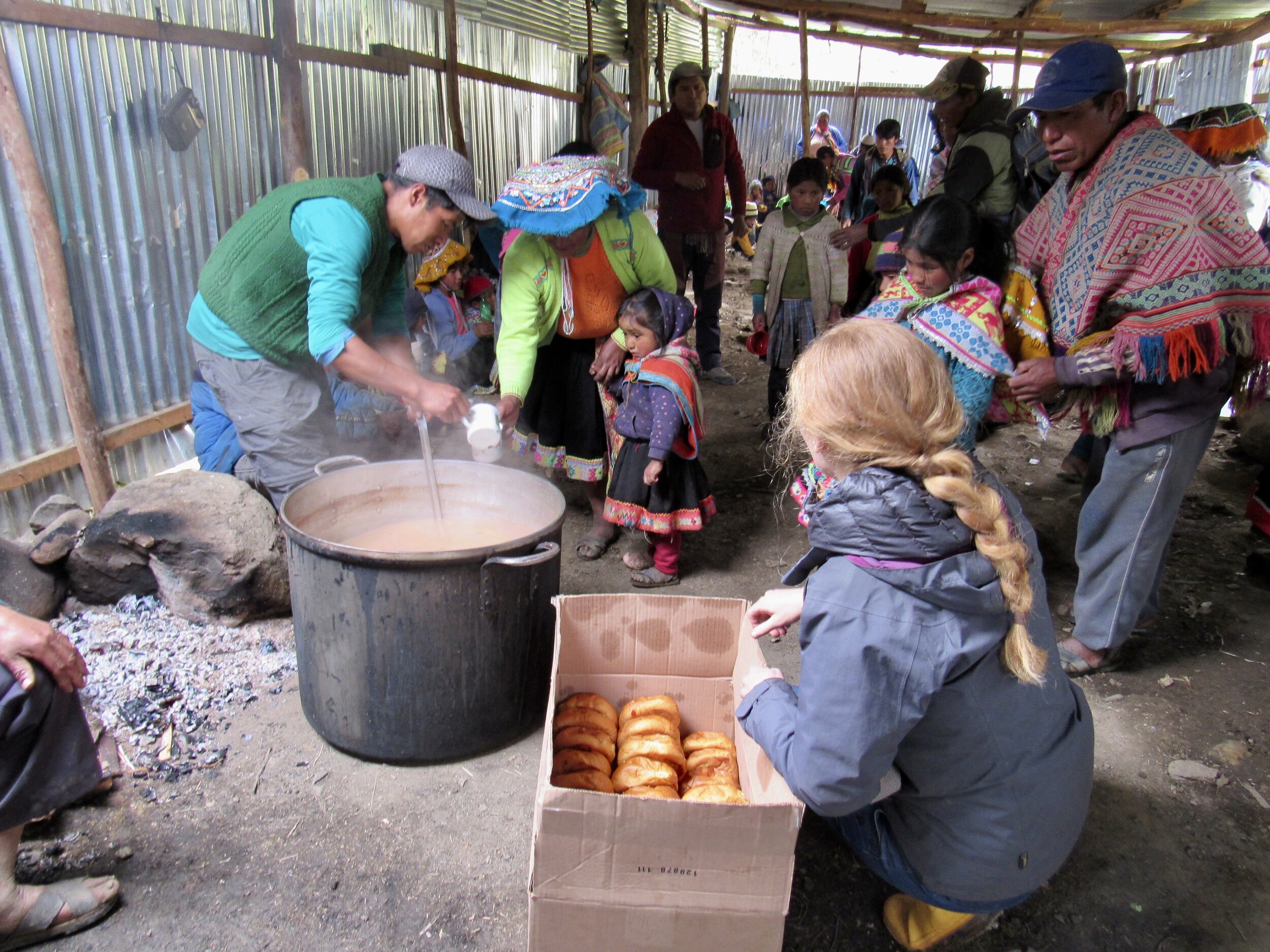
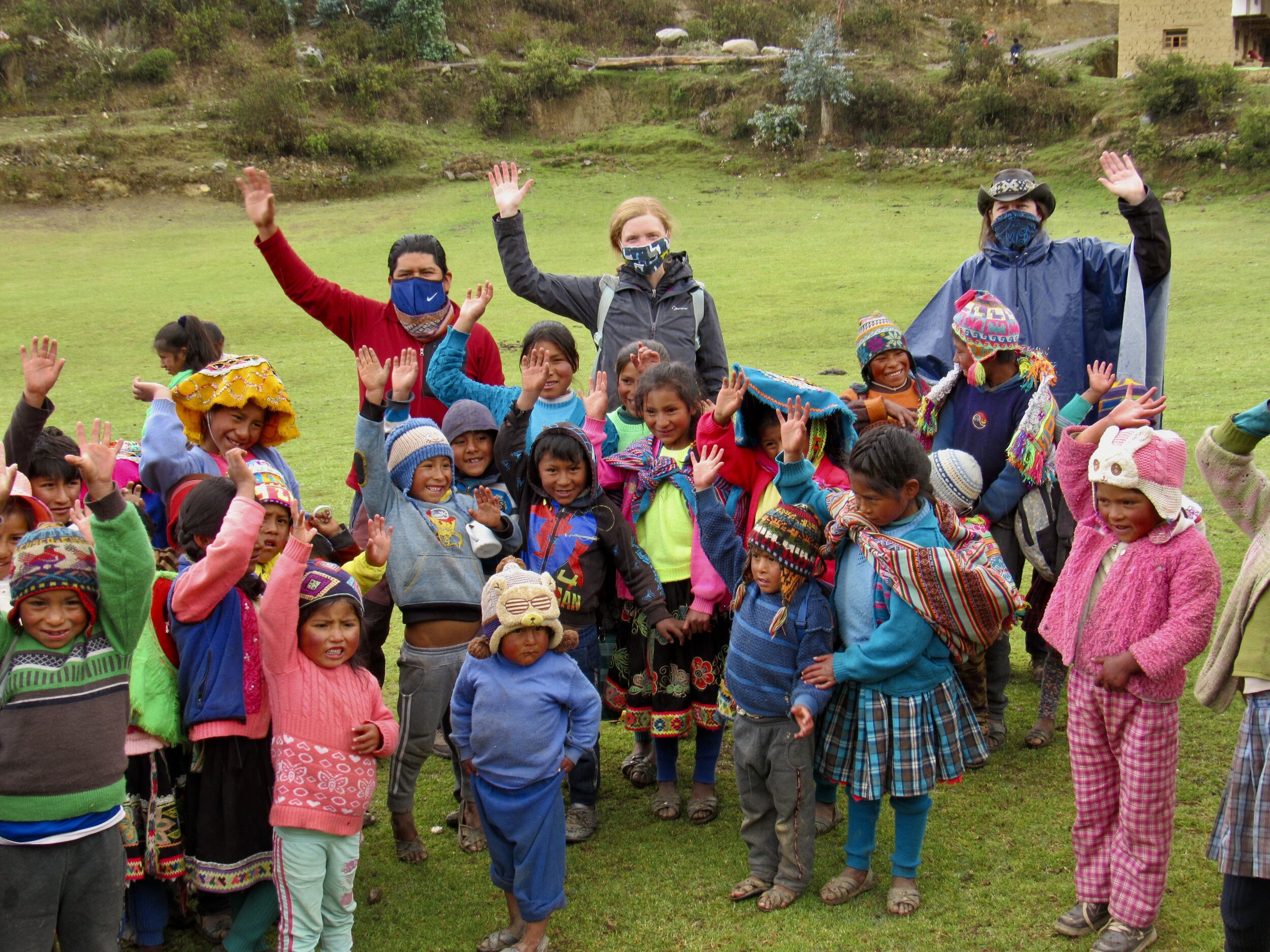
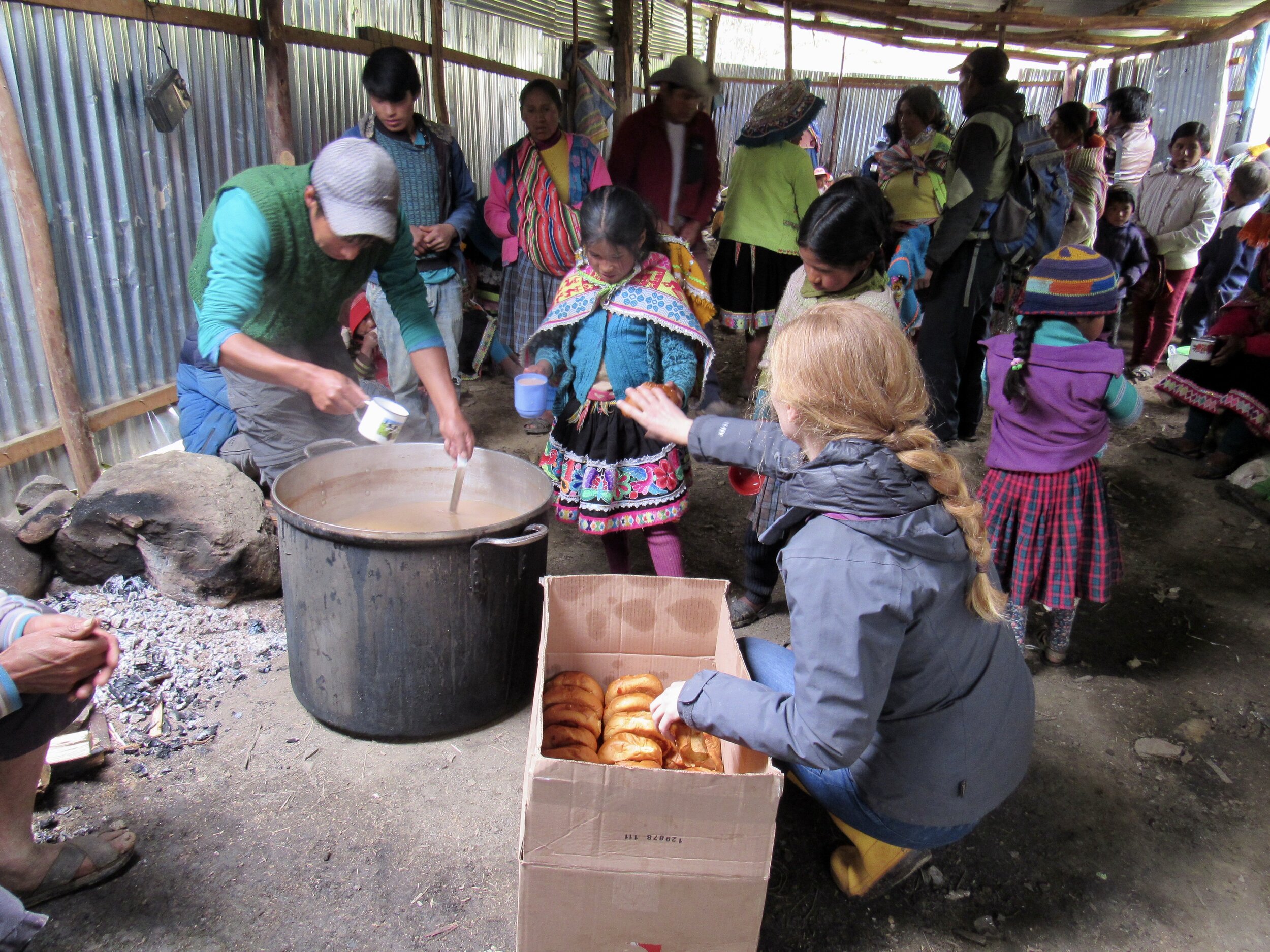
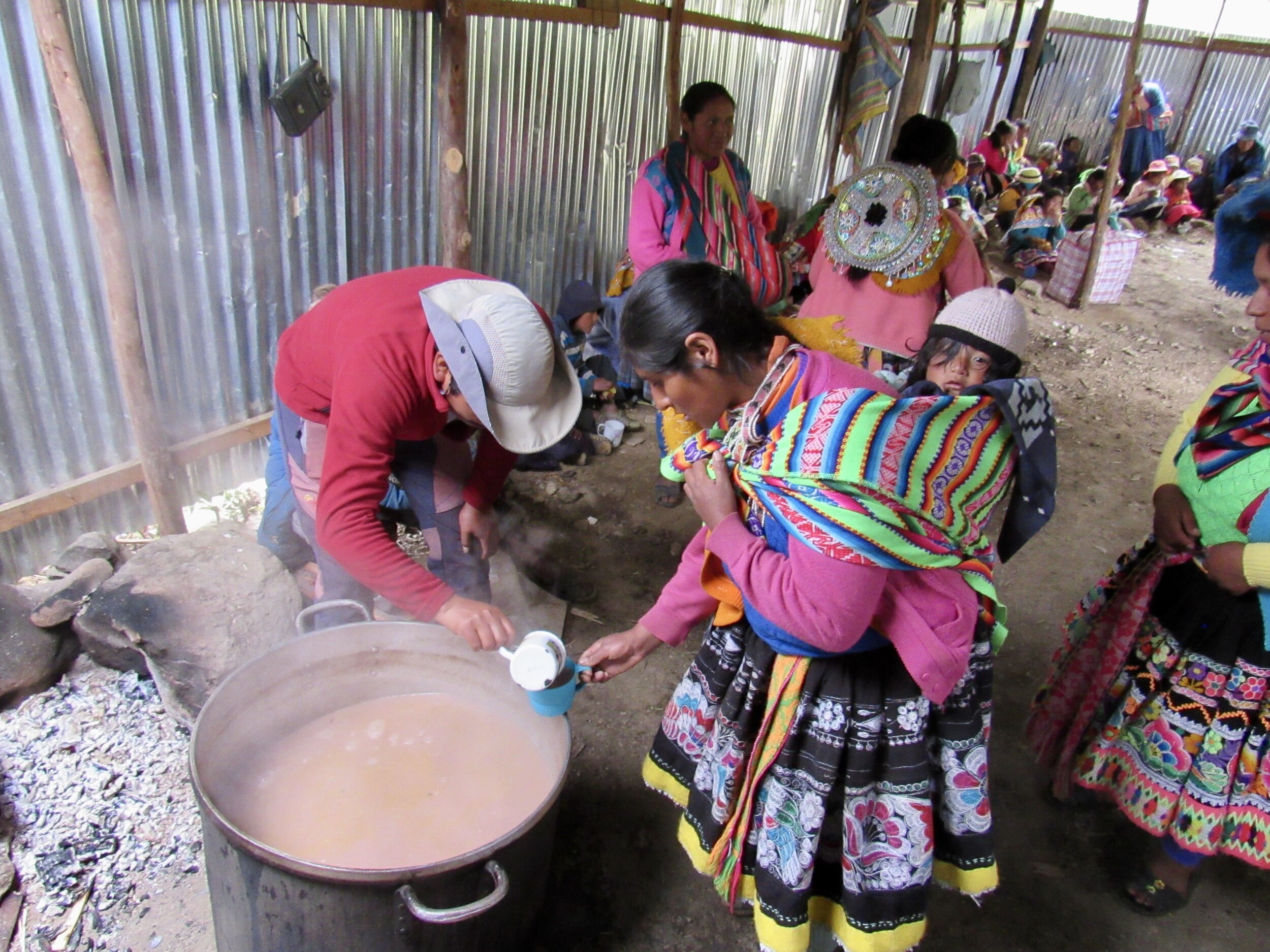
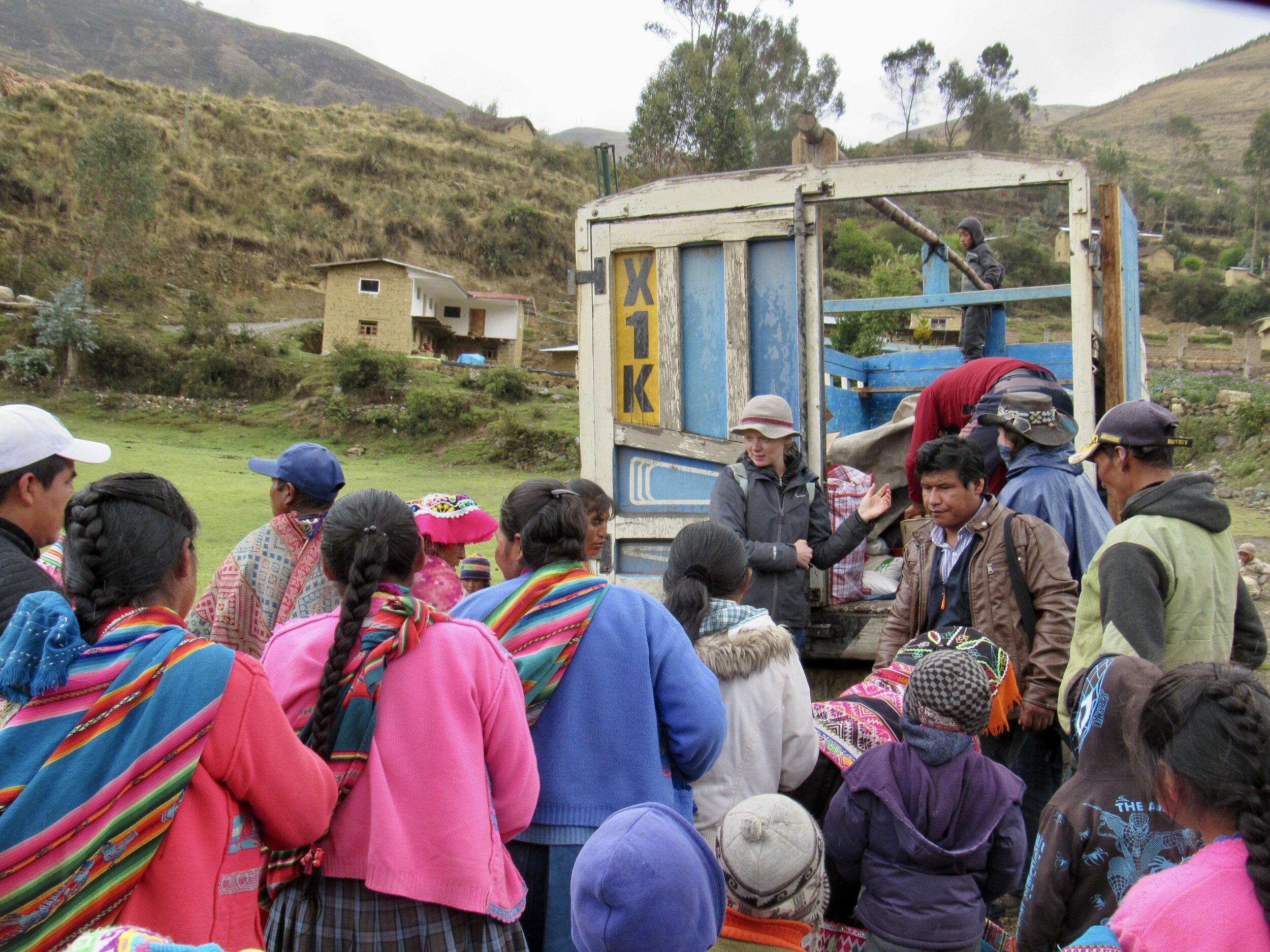
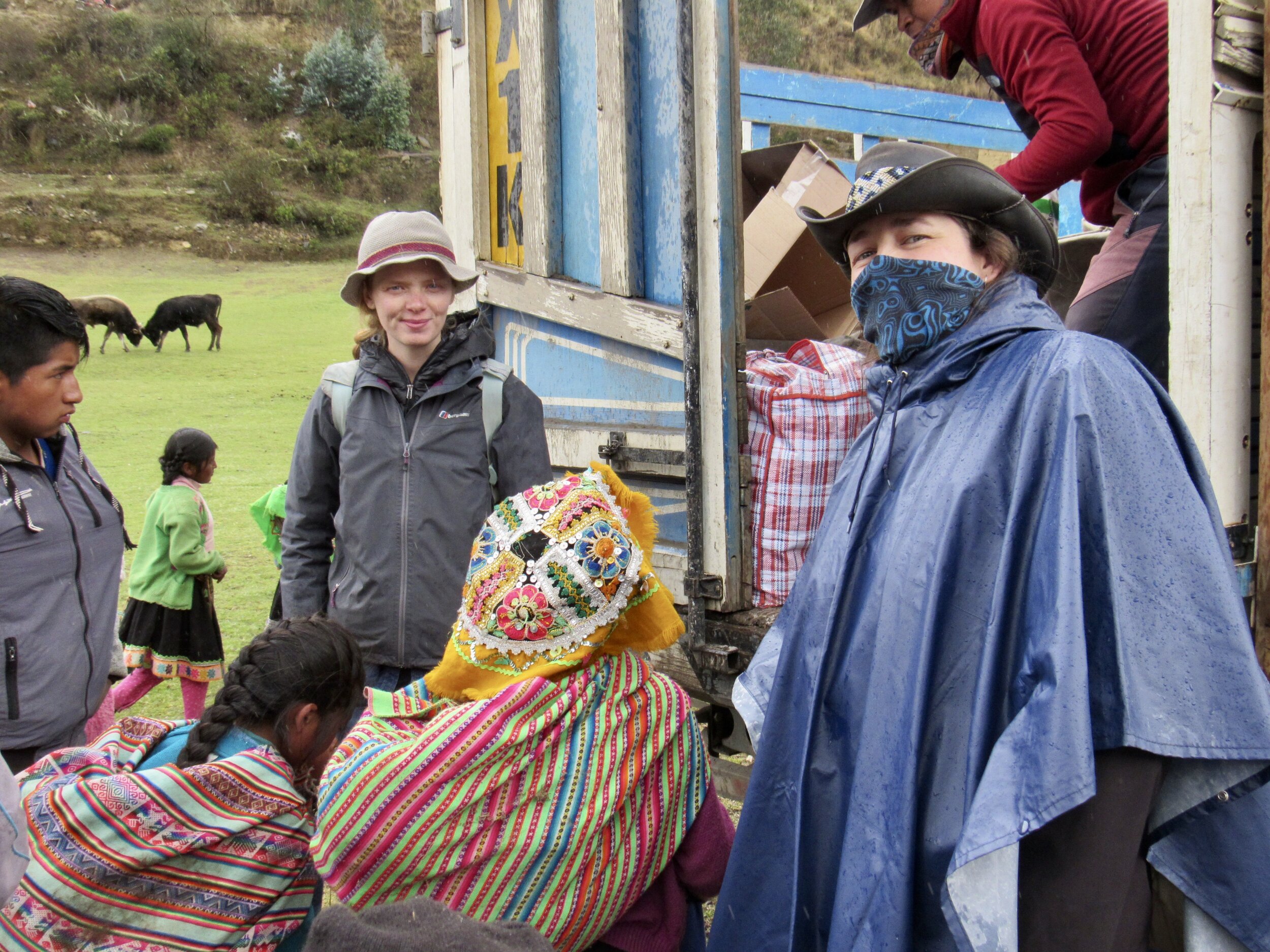

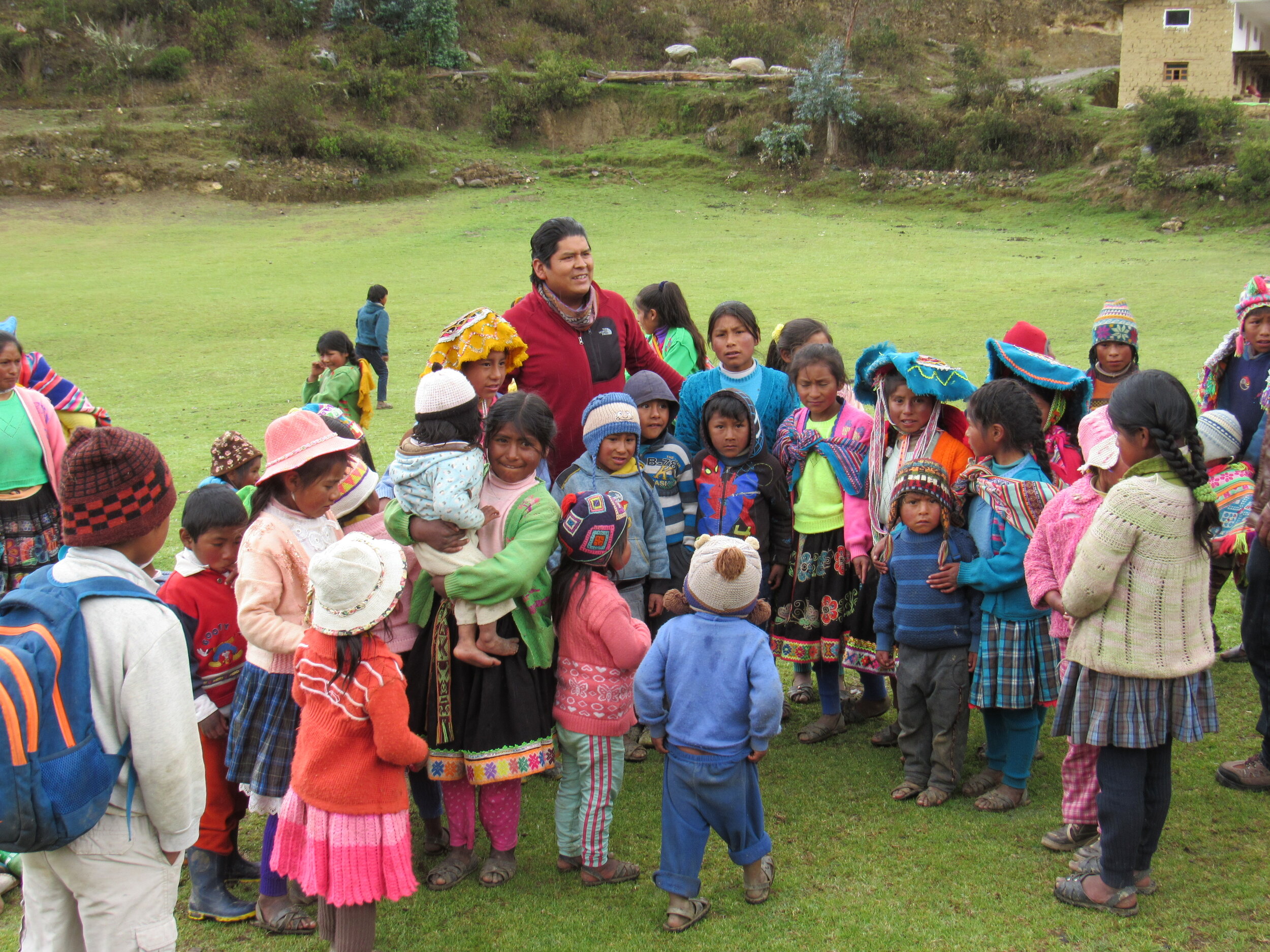
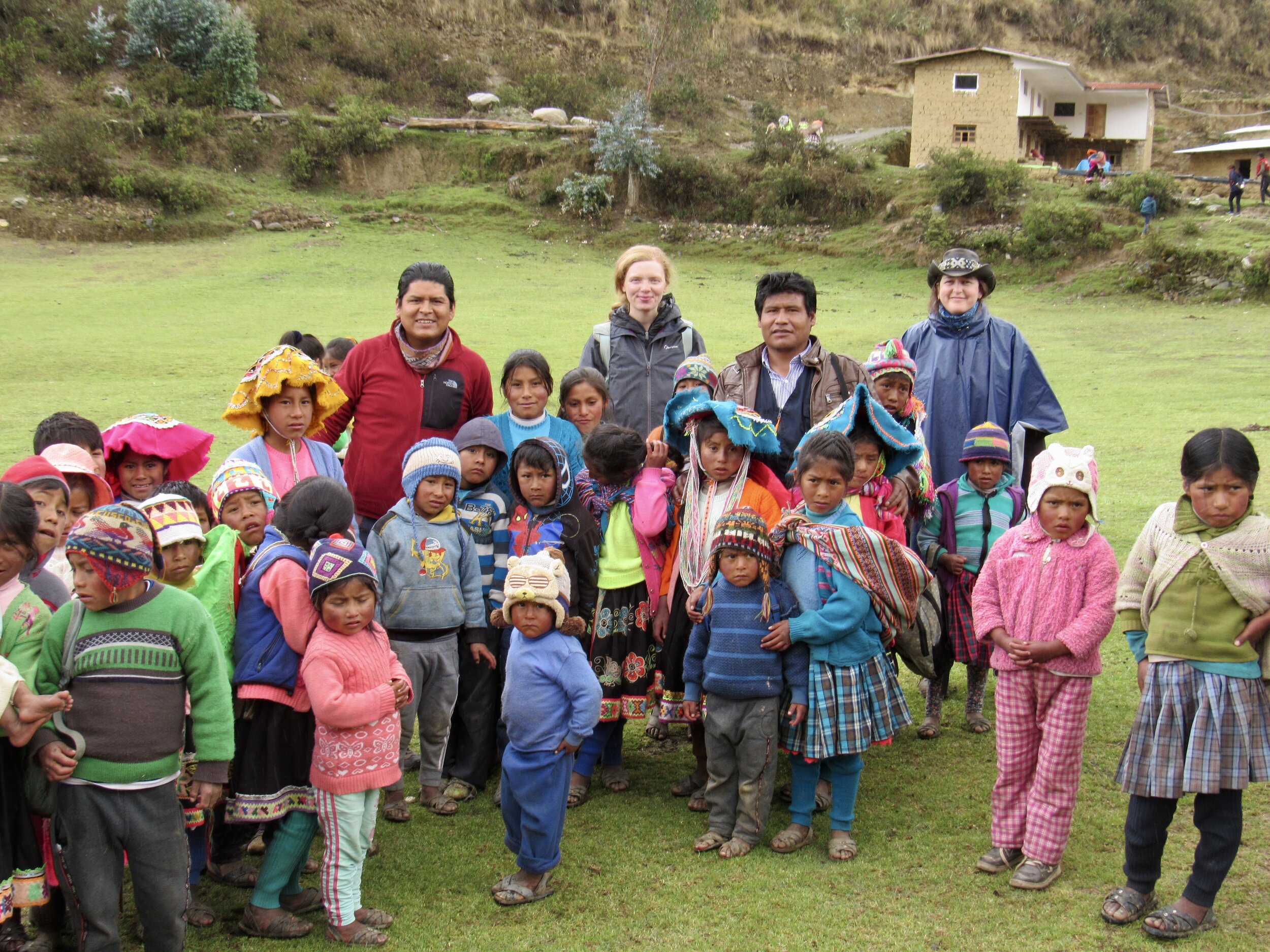
Today I met Auqui, Henry and Sarah at the Maytaq Wasin Hotel, which has become our staging ground for all of the December chocolatadas. Unfortunately, Henry was unable to come with us today because he has family obligations, though he promised me that he will definitely be there for the other four or five chocolatadas. Sarah is a friend from the US, who I know just because the expat community in Cusco is really small. Henry brought the mini-panettones directly from the bakery this morning, helped us load the truck, then had to go back home. Elio, who works in the mayor’s office in Calca, sent us a truck for all of the supplies, plus a pickup with an extended cab for us volunteers. We set out at exactly 6:30am, stopping just above Cusco to pick up Linda, who I know from the Healing House in Cusco.
It only took about an hour to drive to Calca, where we stopped for the vehicles to get gas and to pick up Elio. He has been working with Auqui to organize everything for today. We rely on local government to provide transportation for us and in some cases to notify the communities when we will be coming. Sometimes Auqui or Henry have direct contacts in the communities, but often we don’t. Many of the communities that we visit are chosen by the mayor’s office. We just call up the mayors and ask which communities in their area have not received any help since the pandemic began. There are so many tiny communities up in the mountains that there are always places that haven’t received even any help from the government.
Today’s families live in a collection of five “microcuenca” about two hours up into the mountains from the town of Calca. Collectively called Microcuenca Ccarampa Chaiña, the names of the microcuenca are: Ccachuchachu, Muñayoc, Marcani, Ttio 2B, Ttio and Airepampa. These communities are so small that they don’t have a mayor. Their only political representation is a community “president” who is supposed to advocate for them at the mayor’s office in what is effectively their county seat.
Our first stop was Ttio Grande. Ttio is pronounced differently from tio (uncle, in Spanish). Ttio starts with Quechua’s hard t, which doesn’t exist in Spanish or English pronunciation, although it is similar to the Arabic letter ﻁ. Likewise, the double c in Ccachuchachu is pronounced differently than the English or Spanish c. It’s harder, farther back in the throat and has a bit of a glottal stop to it. Quechua is very difficult to describe in writing, so I recommend listening to the interviews in Quechua that I’ve put on the Covid Relief Project’s YouTube channel.
It was raining lightly when we arrived, but kids were playing soccer and running around, clearly unfazed by the drizzle. There were a few adults in a corrugated metal structure on the side of the soccer field, who already had a giant pot of water boiling. We tossed in the cinnamon, cloves and bricks of cacao, then went back to the trucks to find the sugar and milk.
I was surprised that there were so few adults, but Elio explained that unfortunately there was a meeting already scheduled for today with elections for community president. Rather than count the place out, just because the adults wouldn’t be there, Elio decided that we would still take the opportunity to take a chocolatada and warm clothes for the children.
As our first chocolatada, we were a bit unorganized. Between May and August, we had gotten good at distributing food to one representative of each family and also managed distributing school supplies for kids. Chocolatada and clothes and food was a bit more challenging. We can’t give the clothes at the same time, because kids only have two hands. With a mug of hot chocolate and a mini-panettone, they didn’t have an extra hand for clothes.
Eventually, Auqui got everybody to sit down with their hot chocolate inside the shed (it was a big shed) and we started handing out clothes. I am not good at judging children’s sizes and because of the cold most kids were wearing several layers, likely wearing all of the clothes that they owned at the same time. Sarah, Linda and I did our best, then Auqui came to help after everybody had hot chocolate and panettone.
We couldn’t give out all of the clothes, since we still had one or two more stops. Even Elio wasn’t sure if the other communities would manage to gather in one place, or if we would be doing two more chocolatadas. We gave out the rice and oil to all of the adults present, though it was far less than we expected. As they say here “algo es algo,” something is something. At least we were able to take something for most of the kids, even if the adults didn’t all get what we had brought for them. There was a lot of hot chocolate left when we had to go, so the kids all got seconds and probably thirds after we were back on the road.
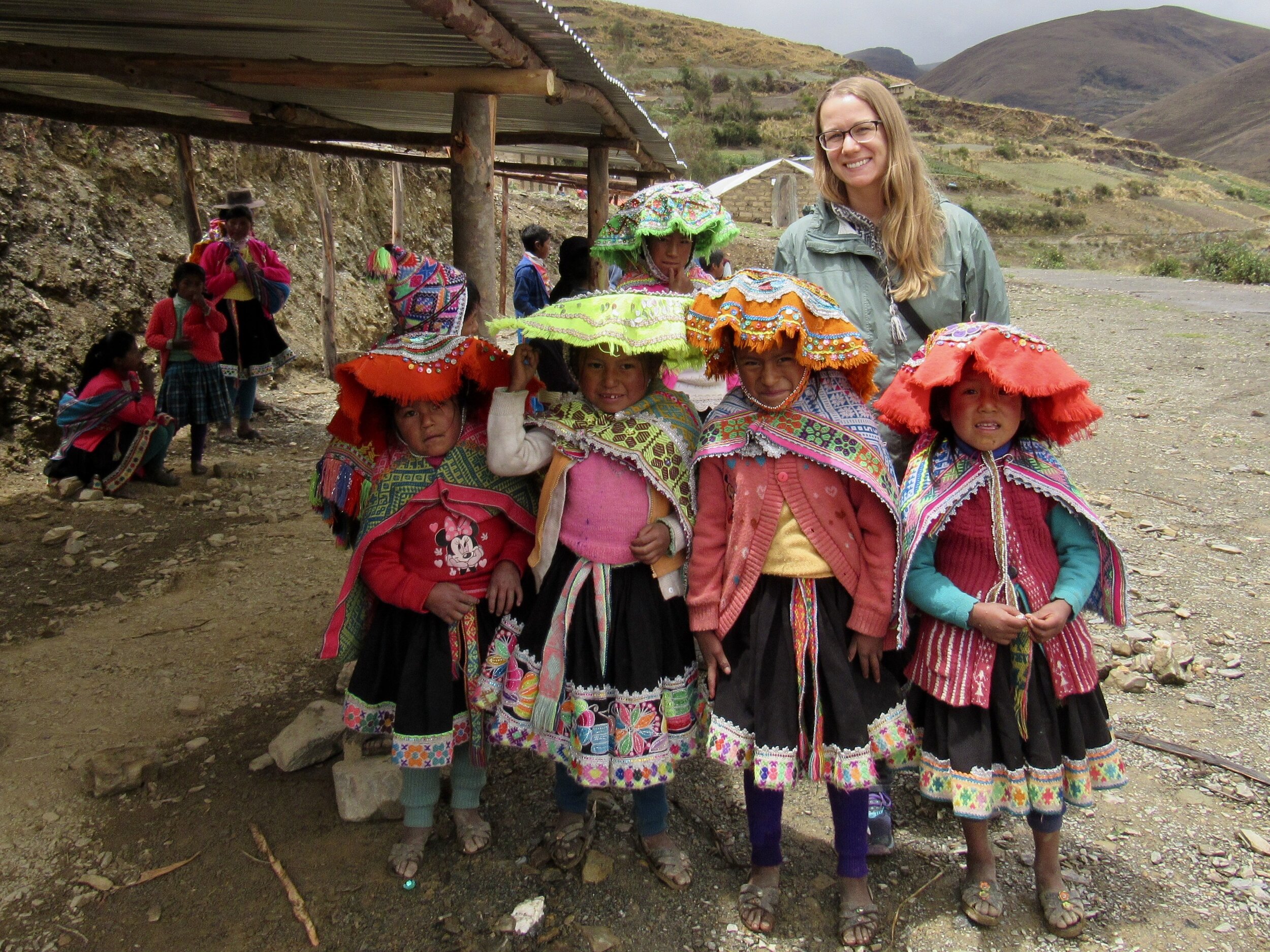
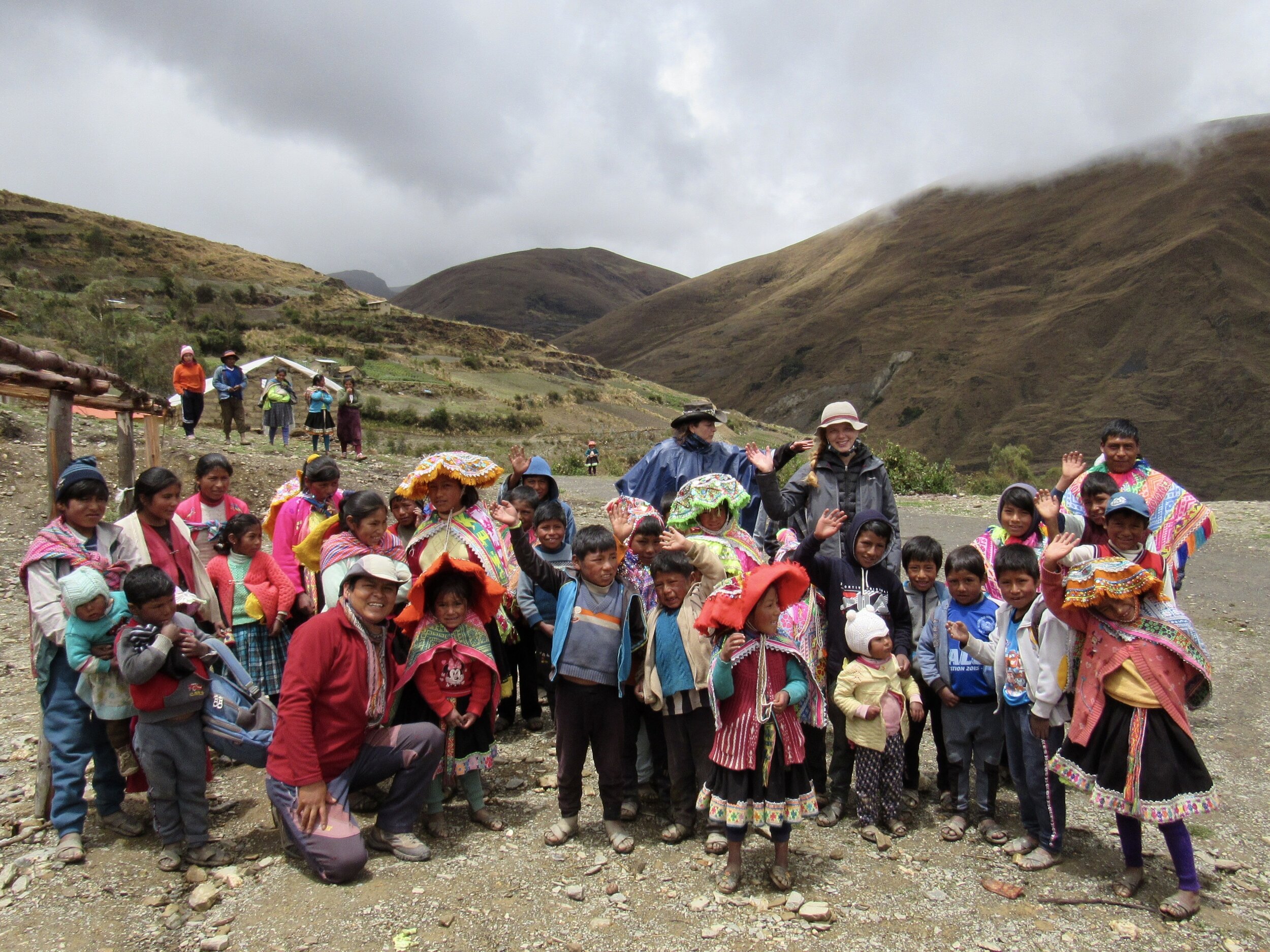
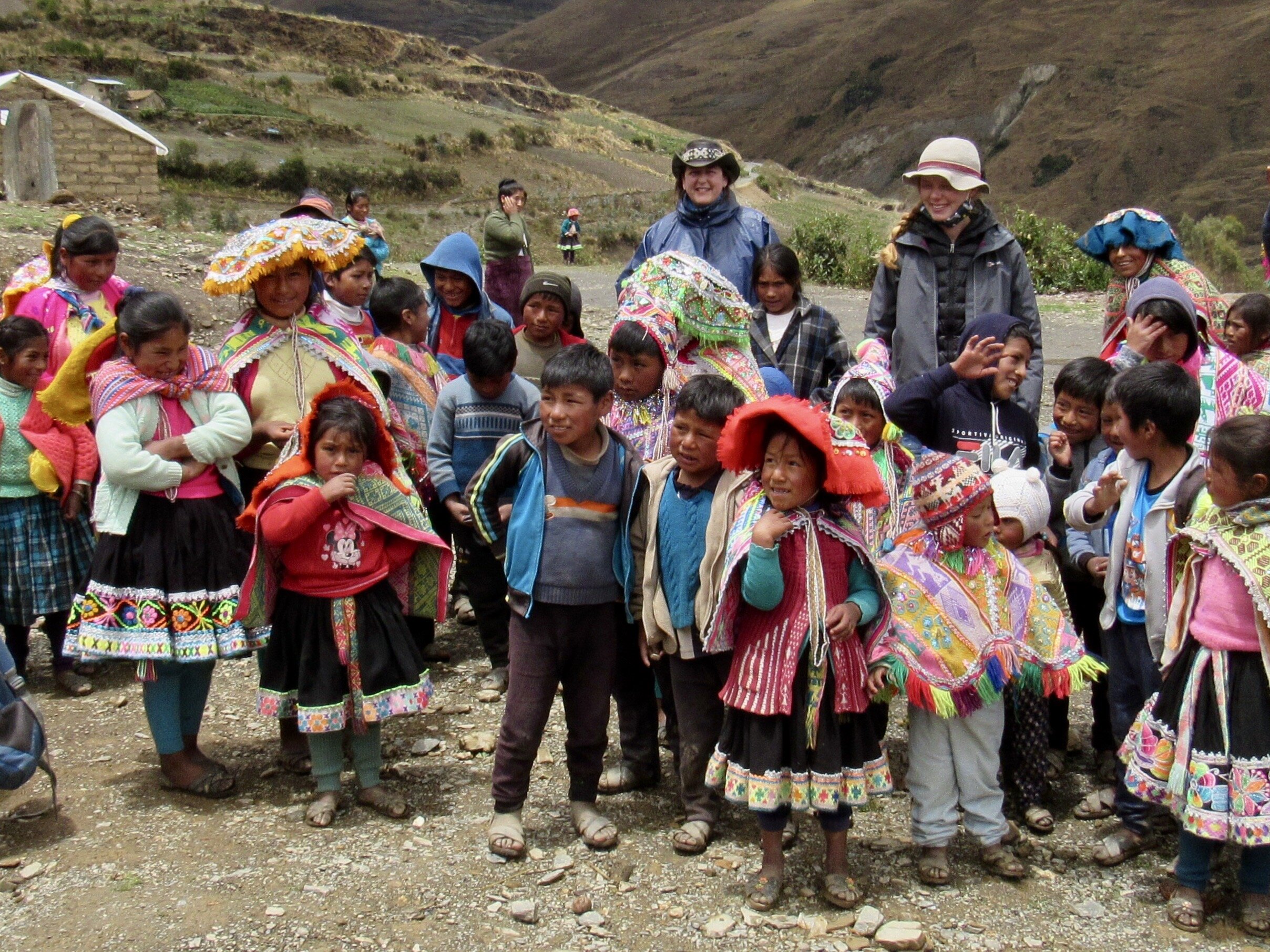
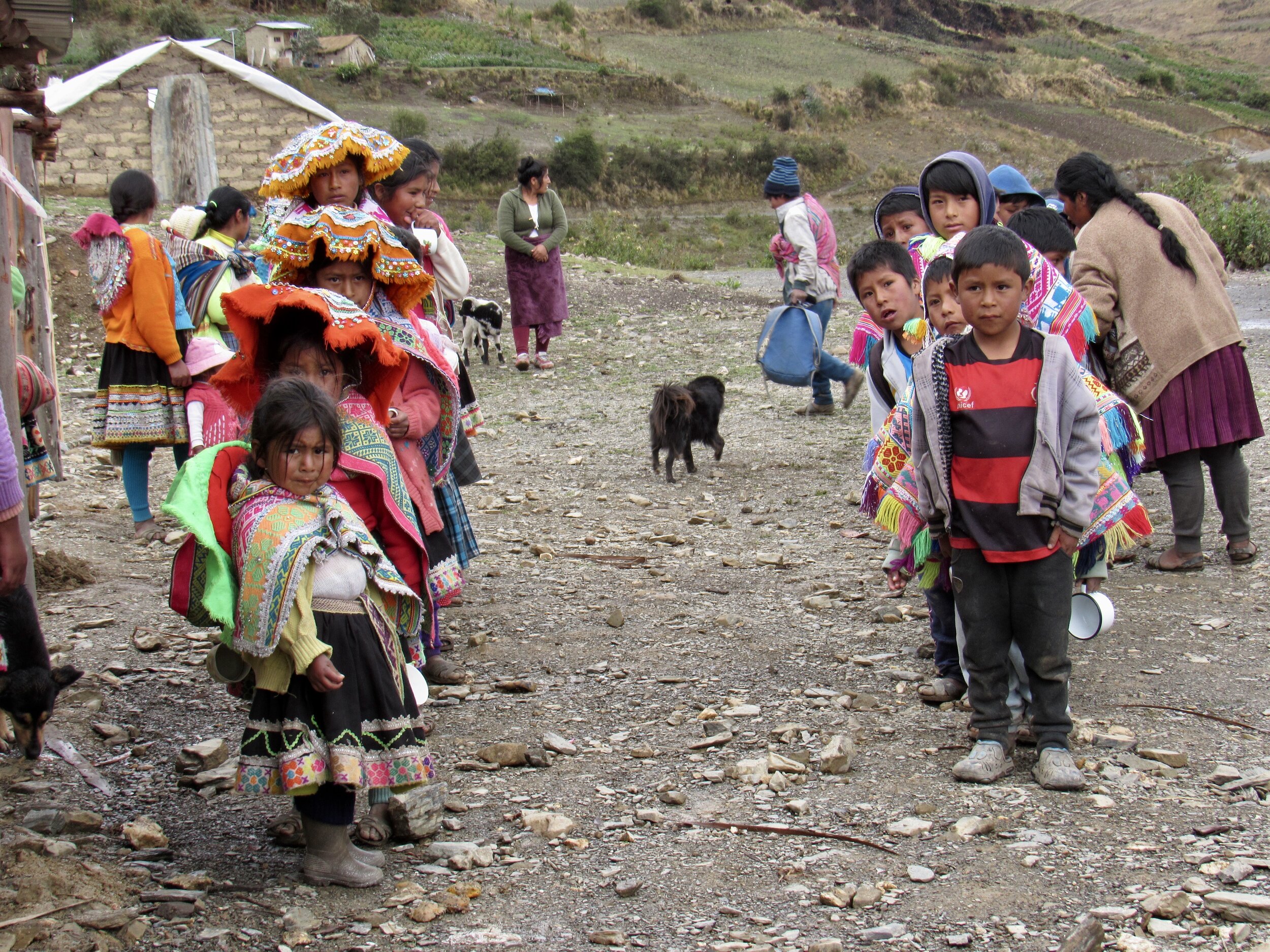
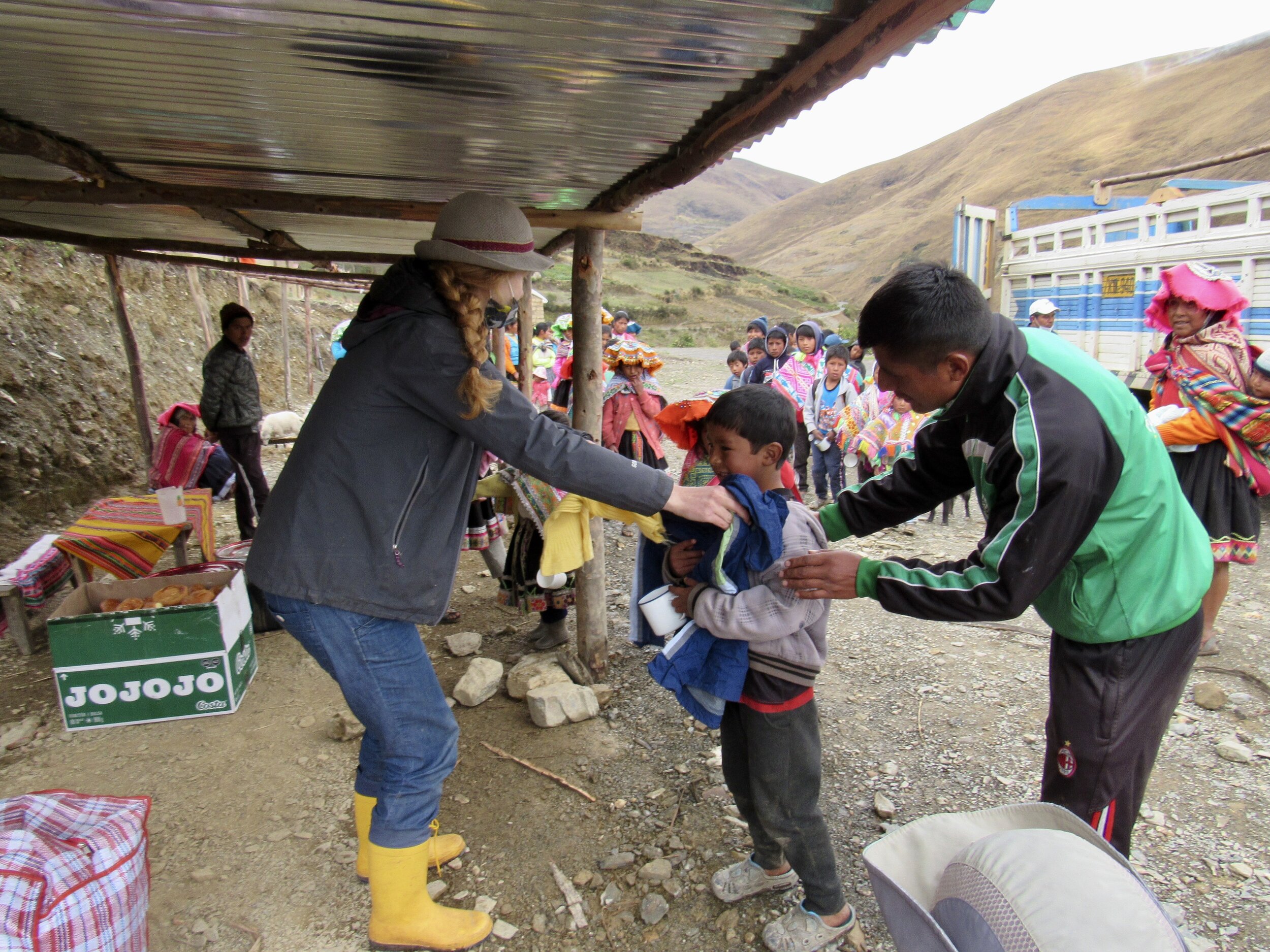
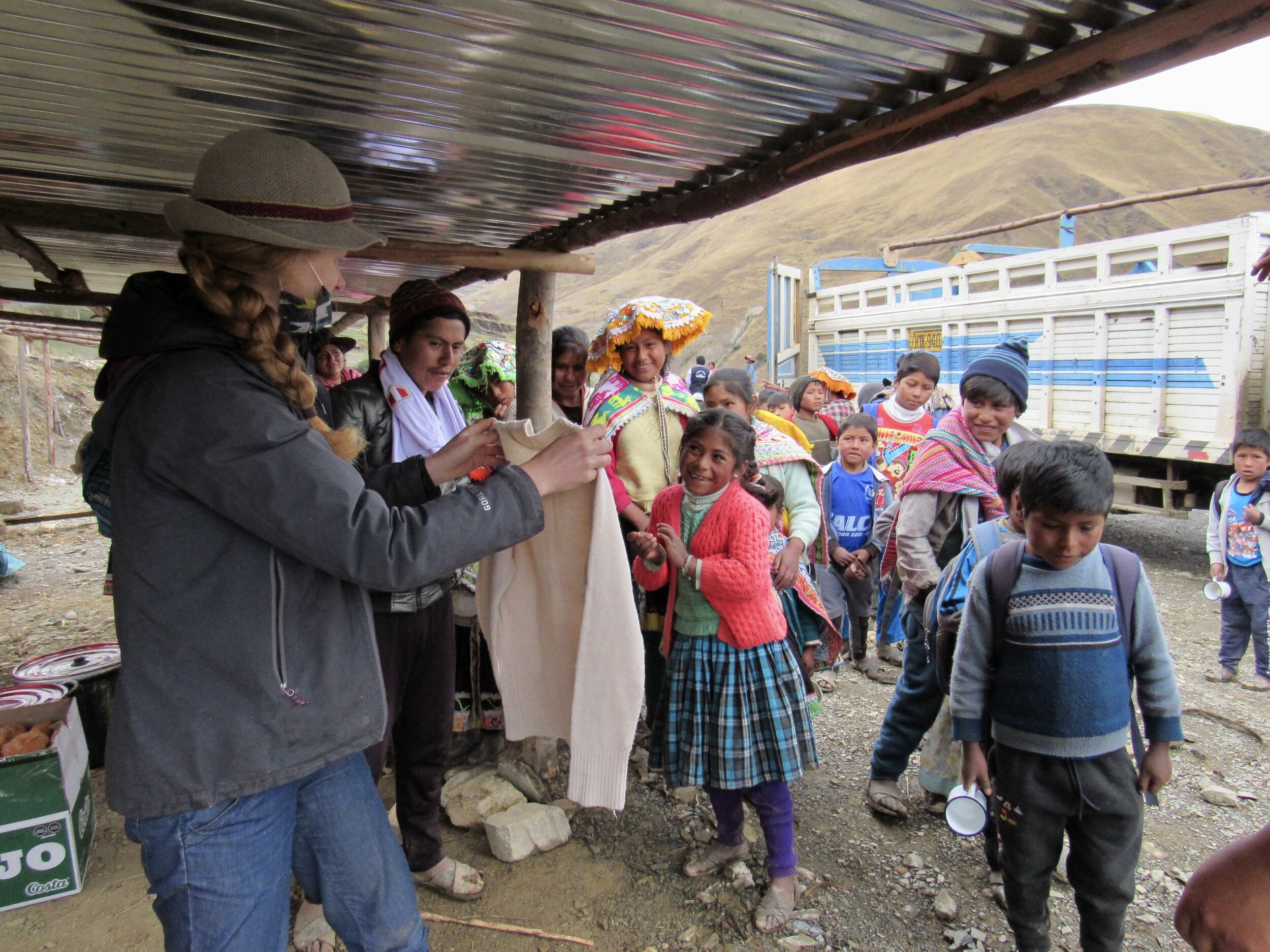
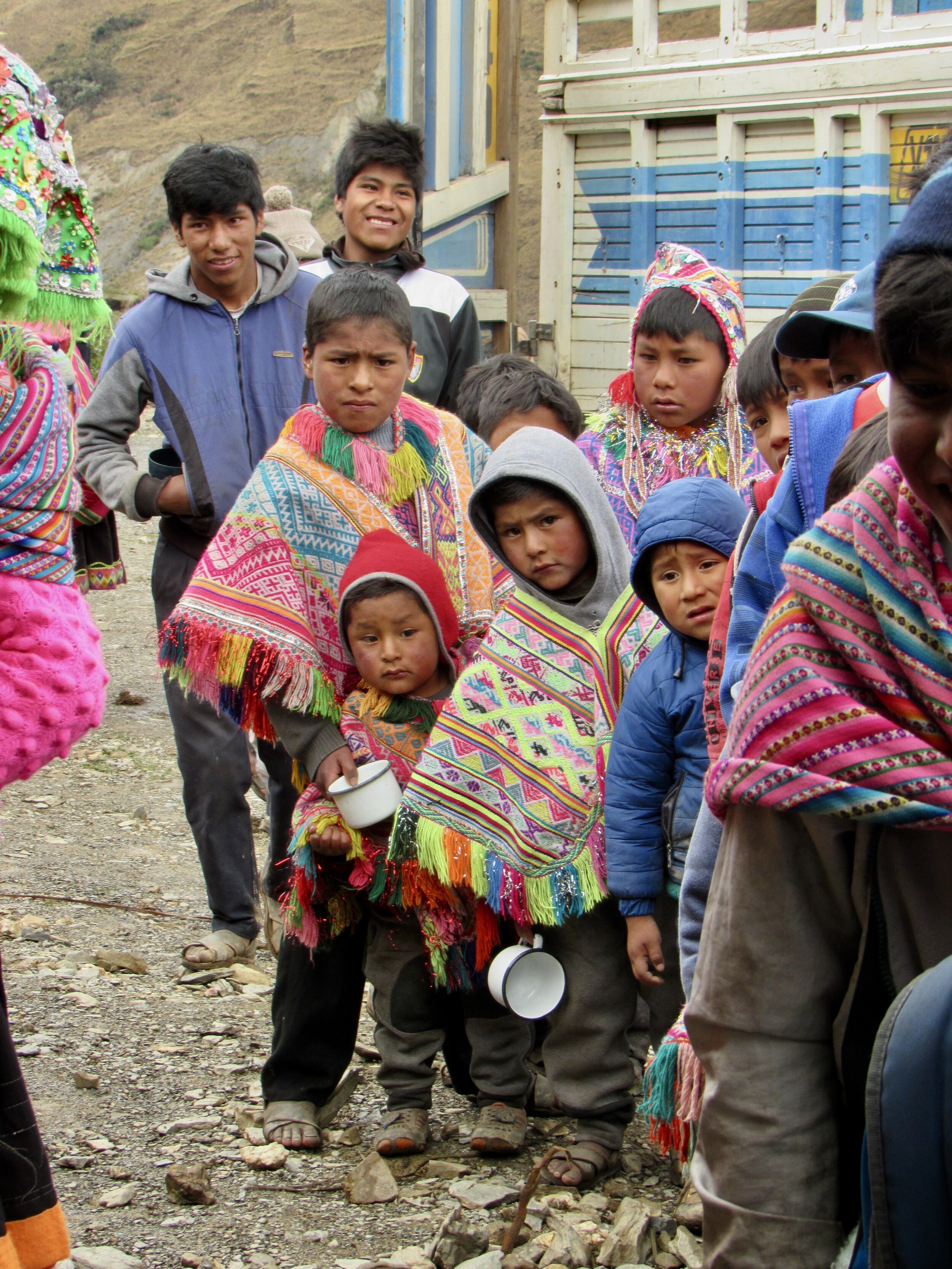
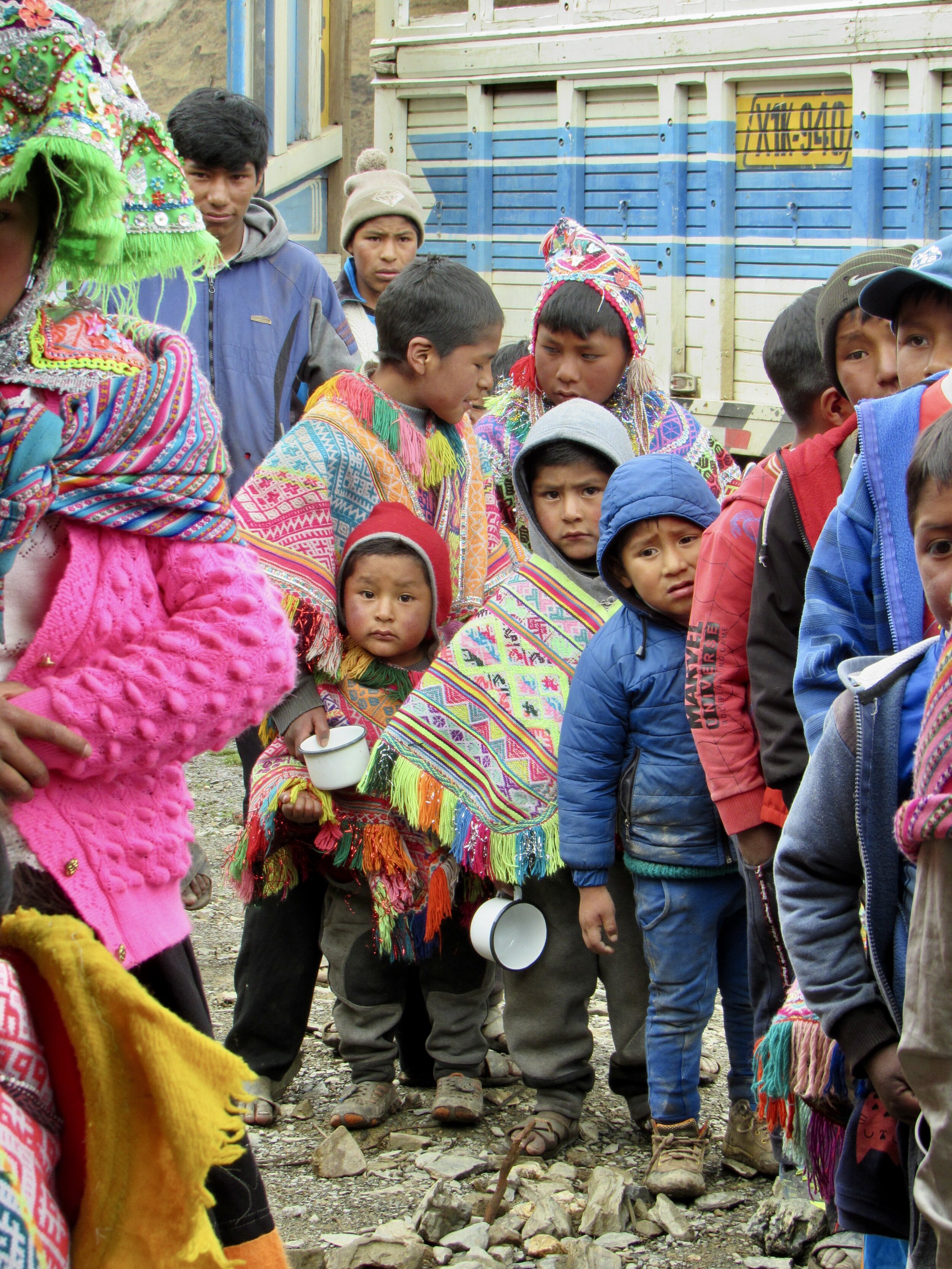
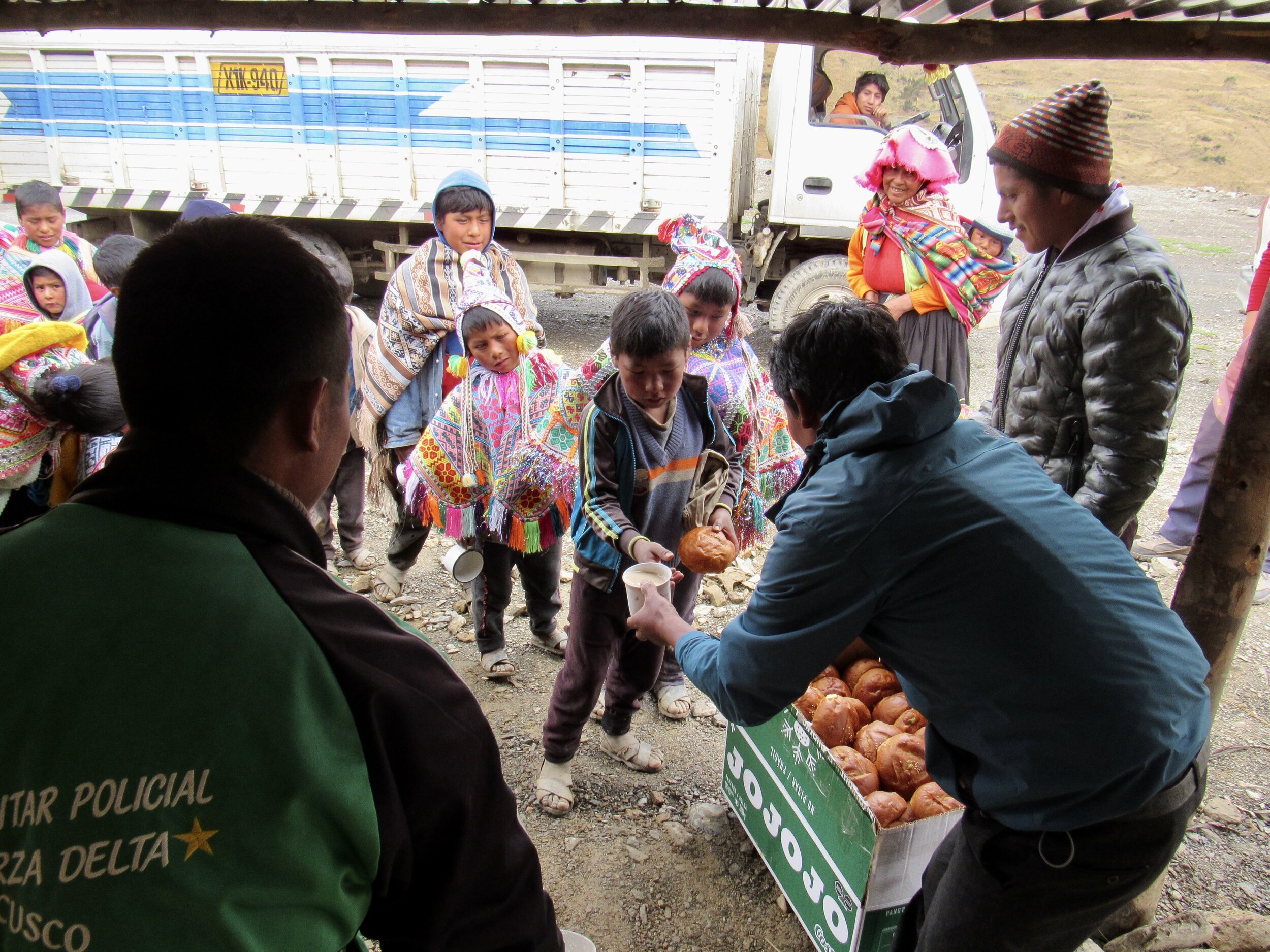
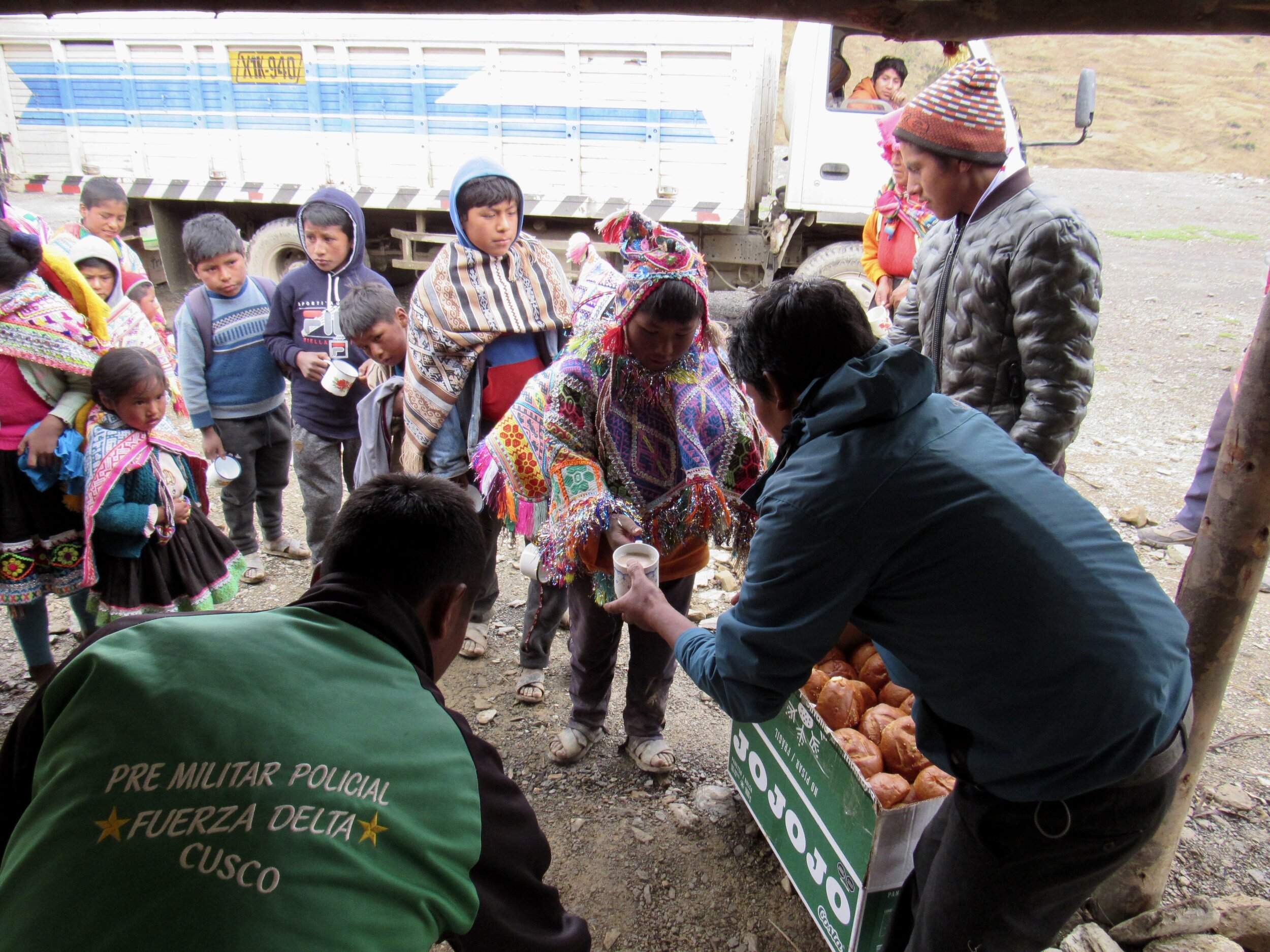
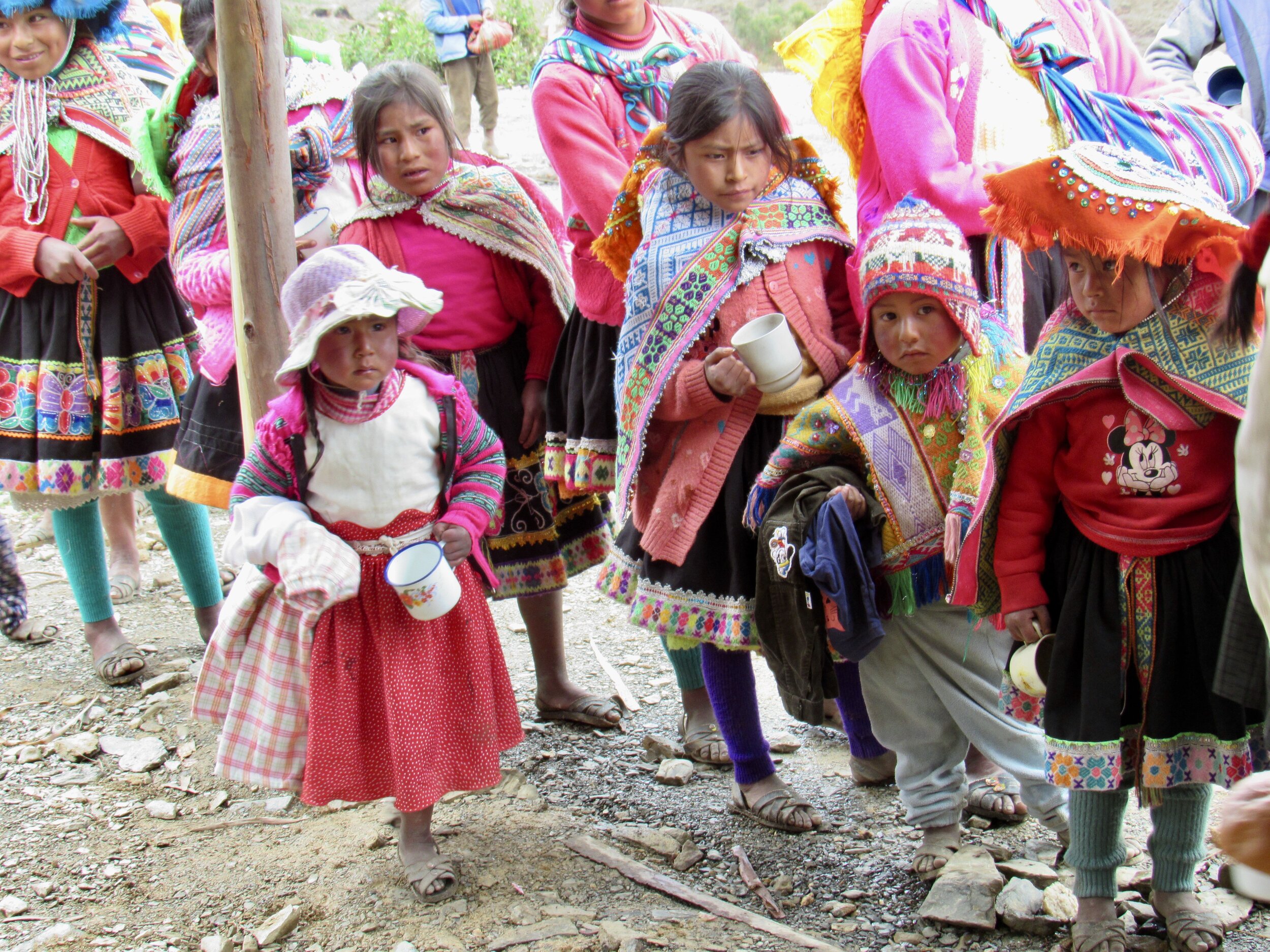
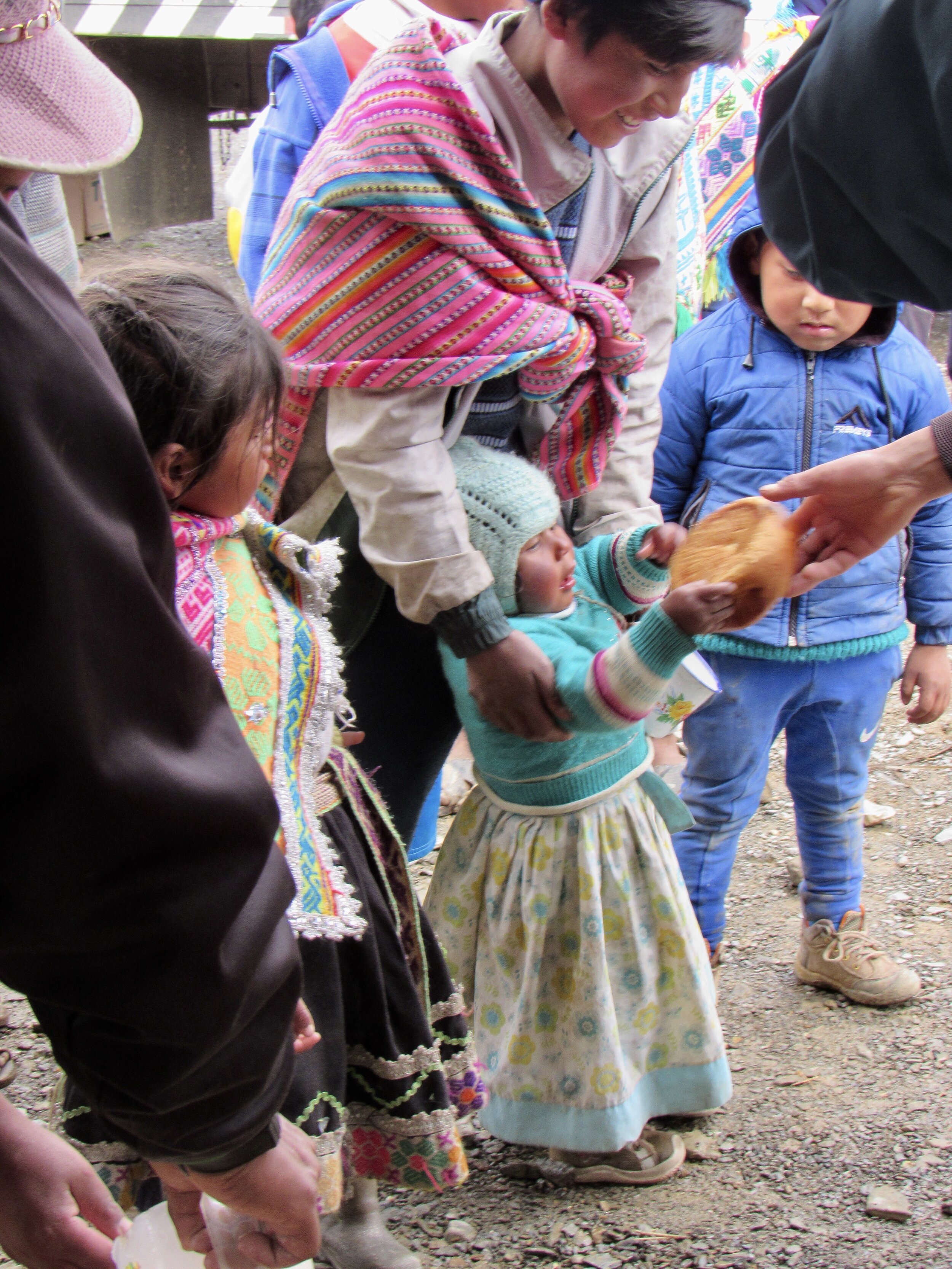
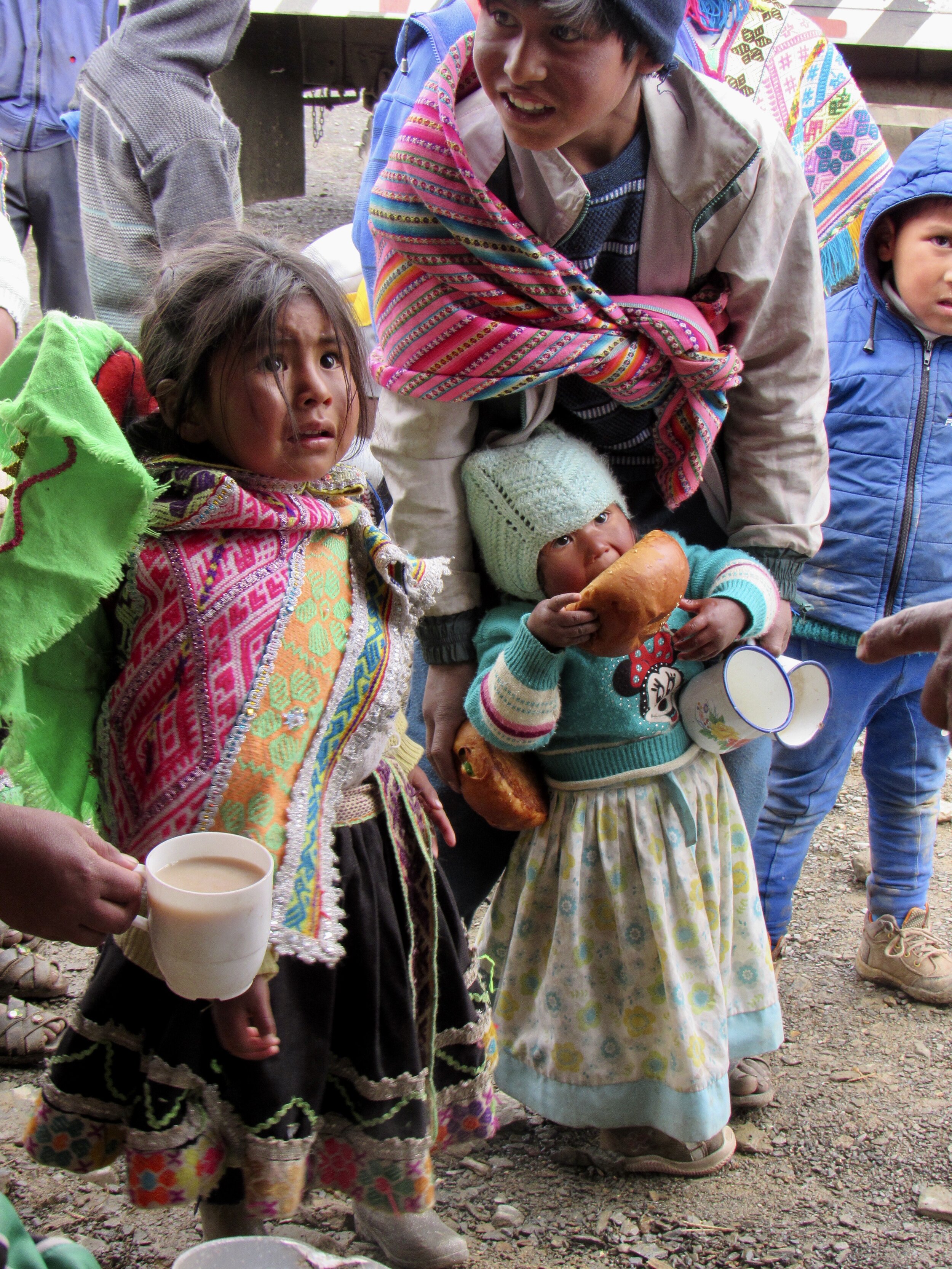
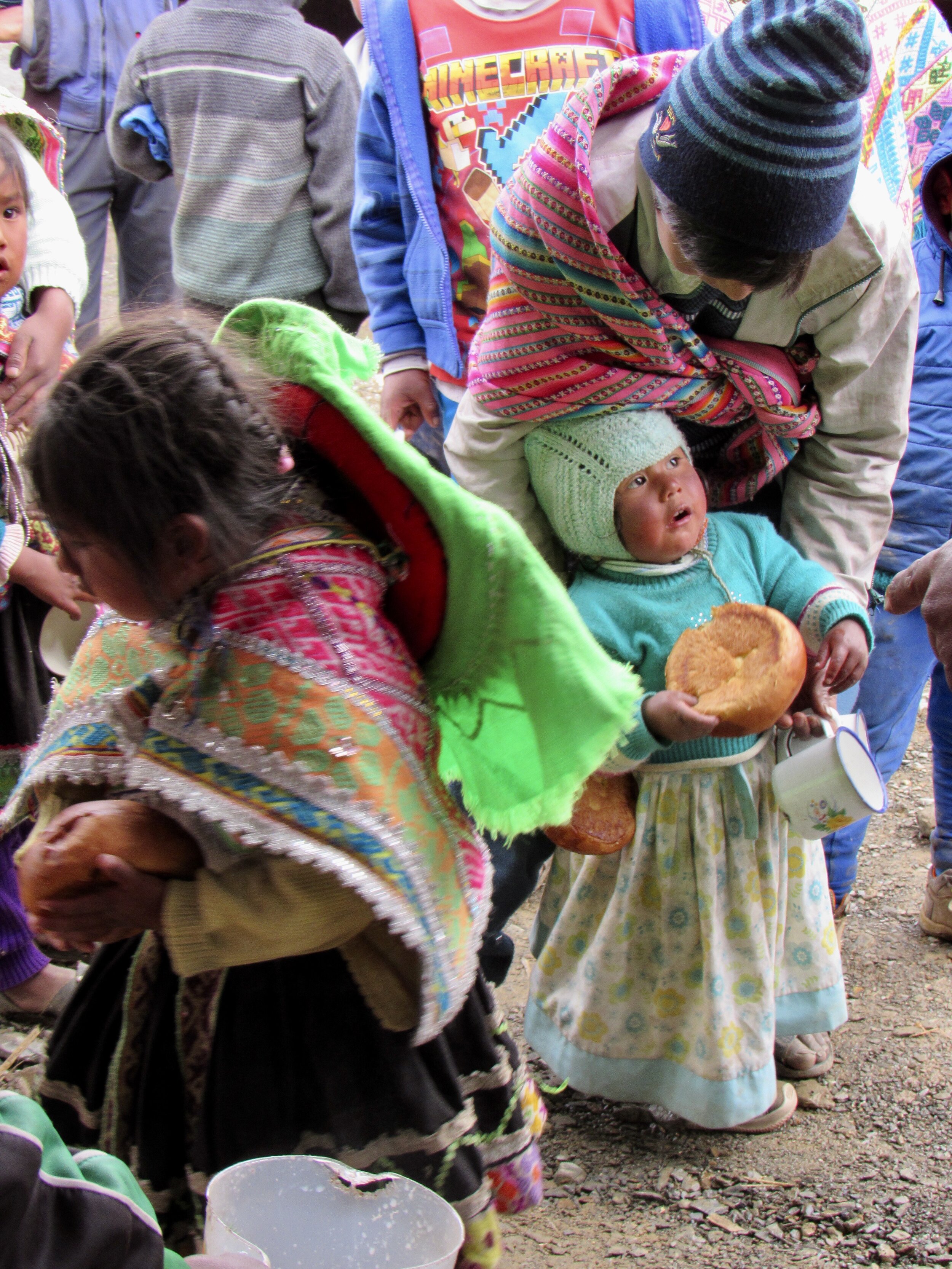
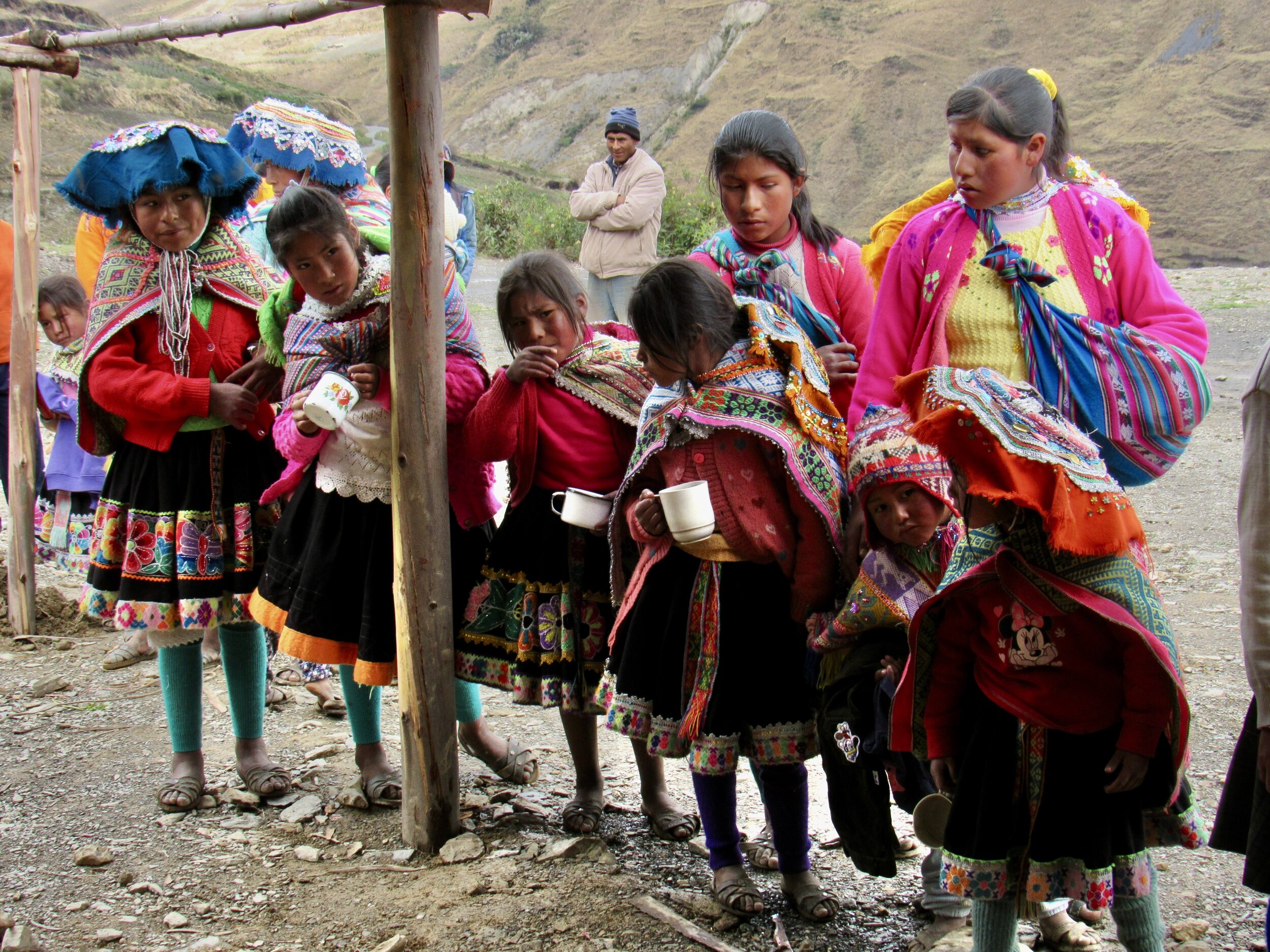
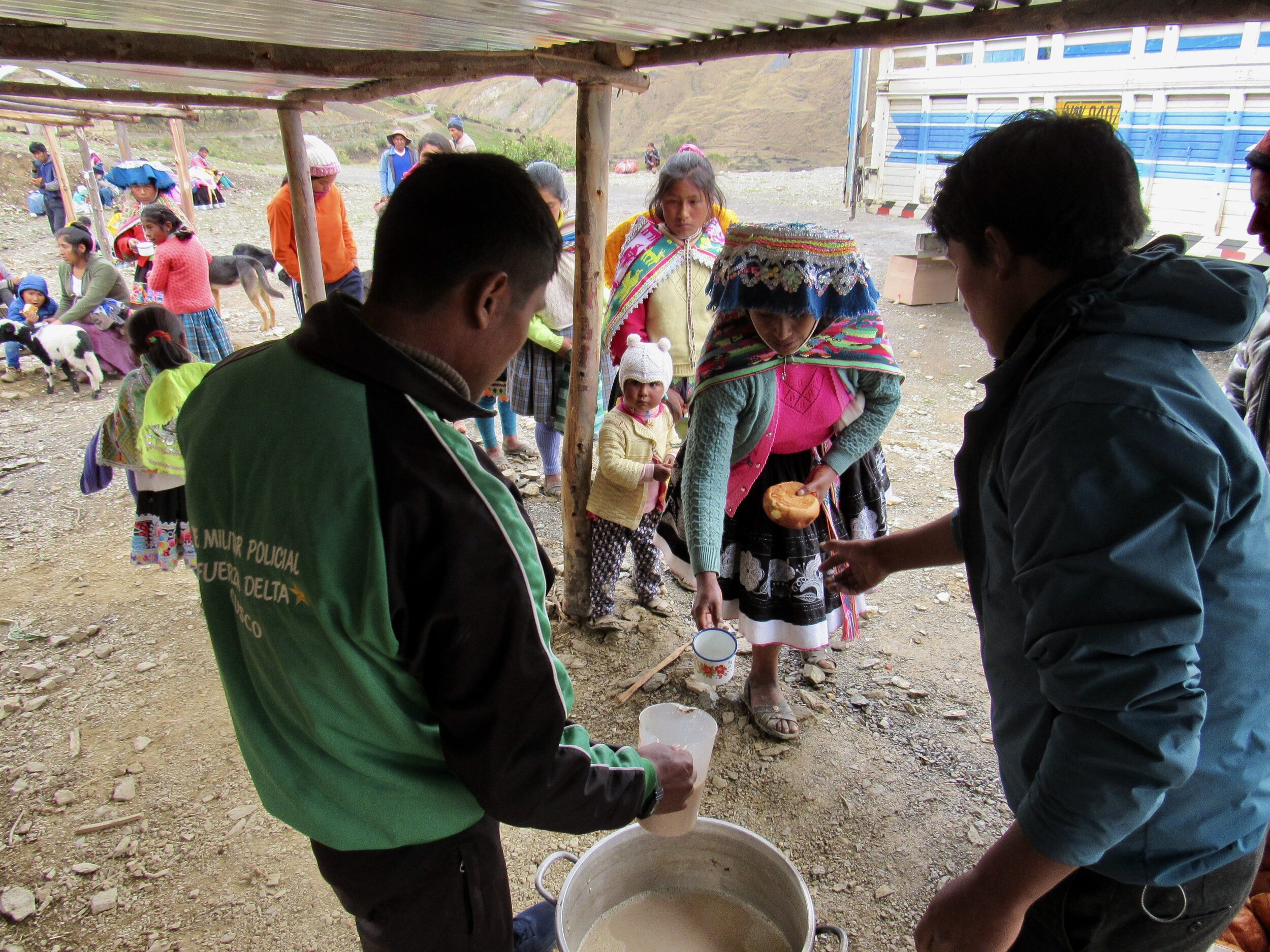
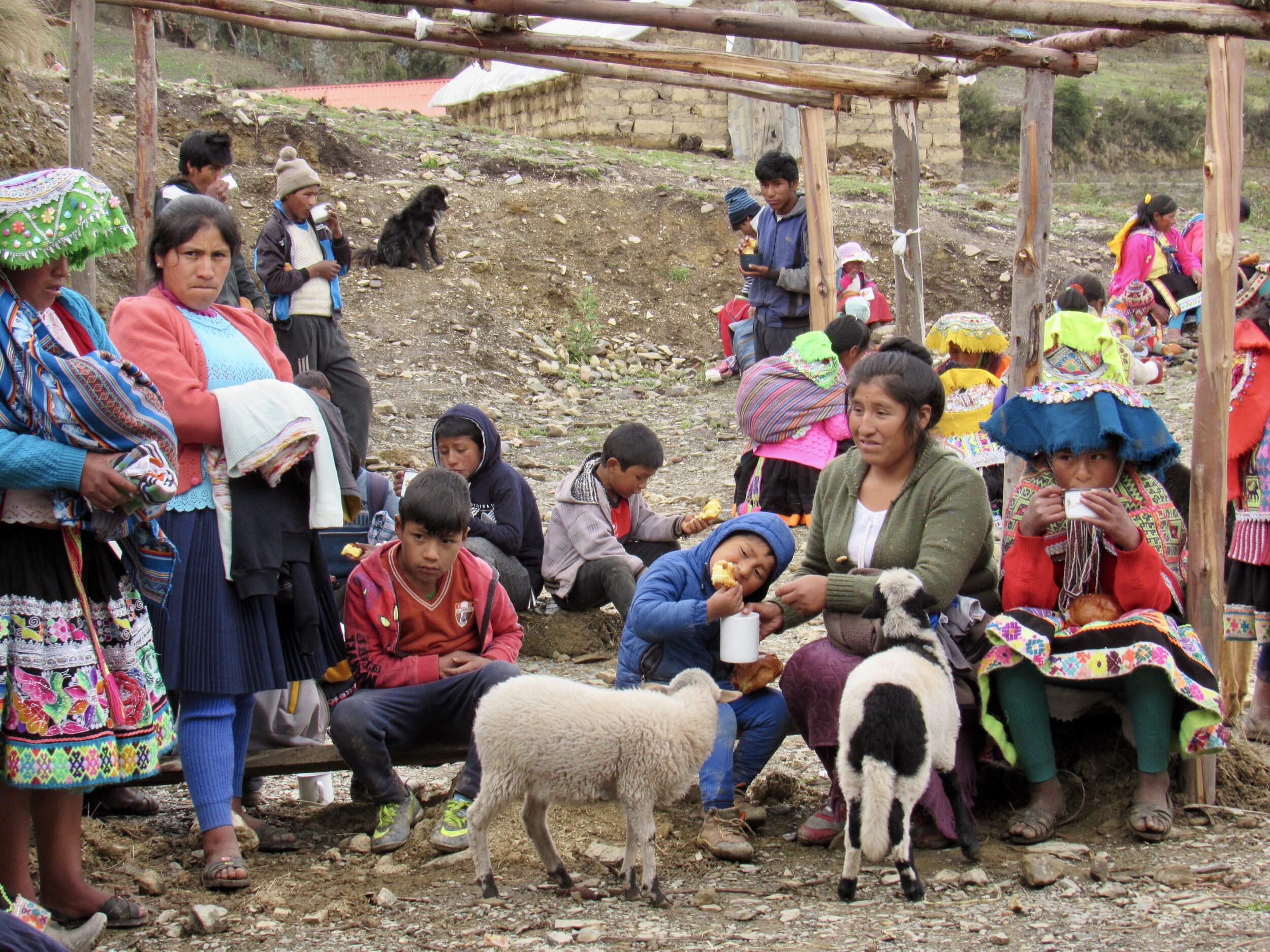
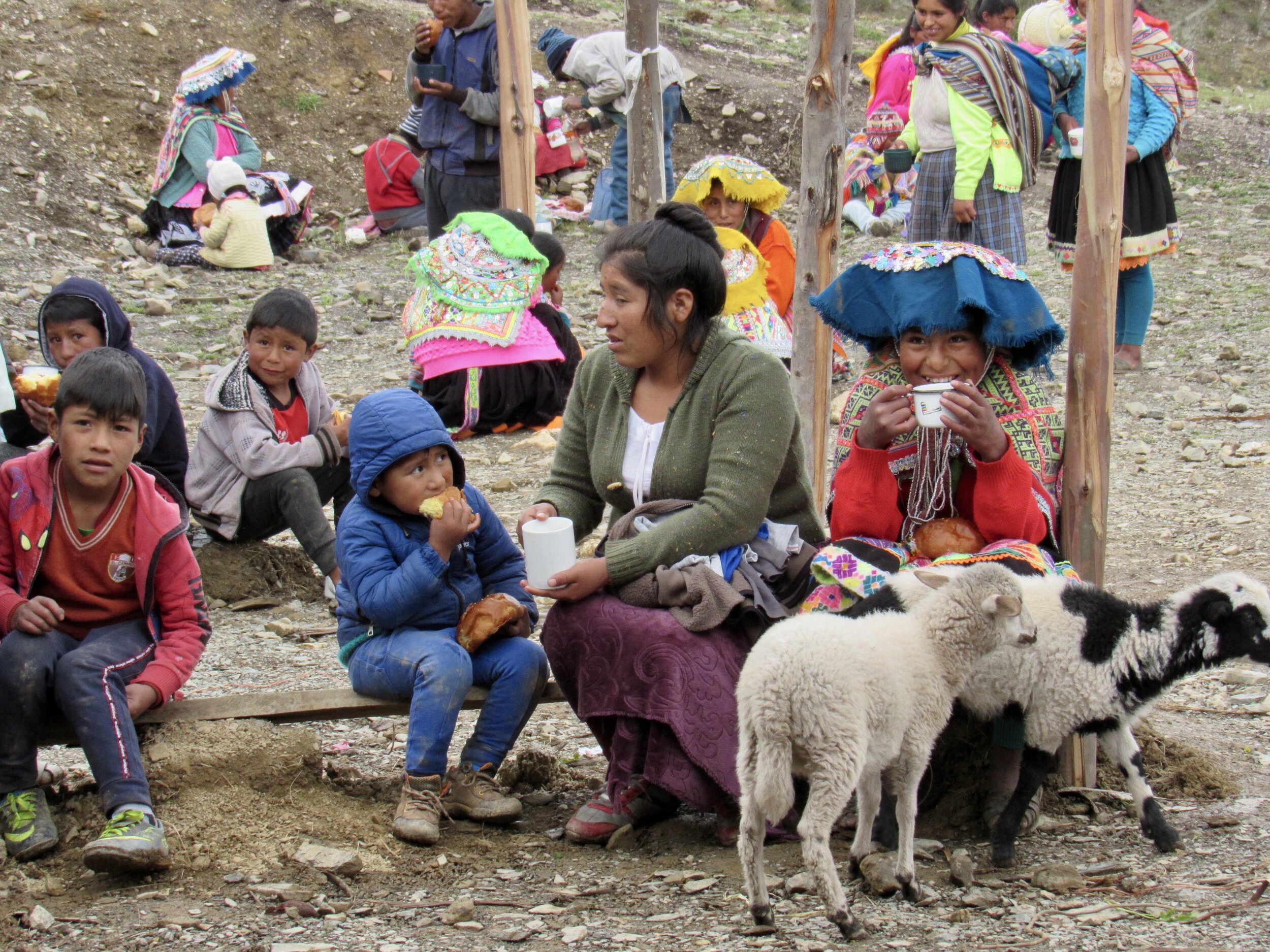
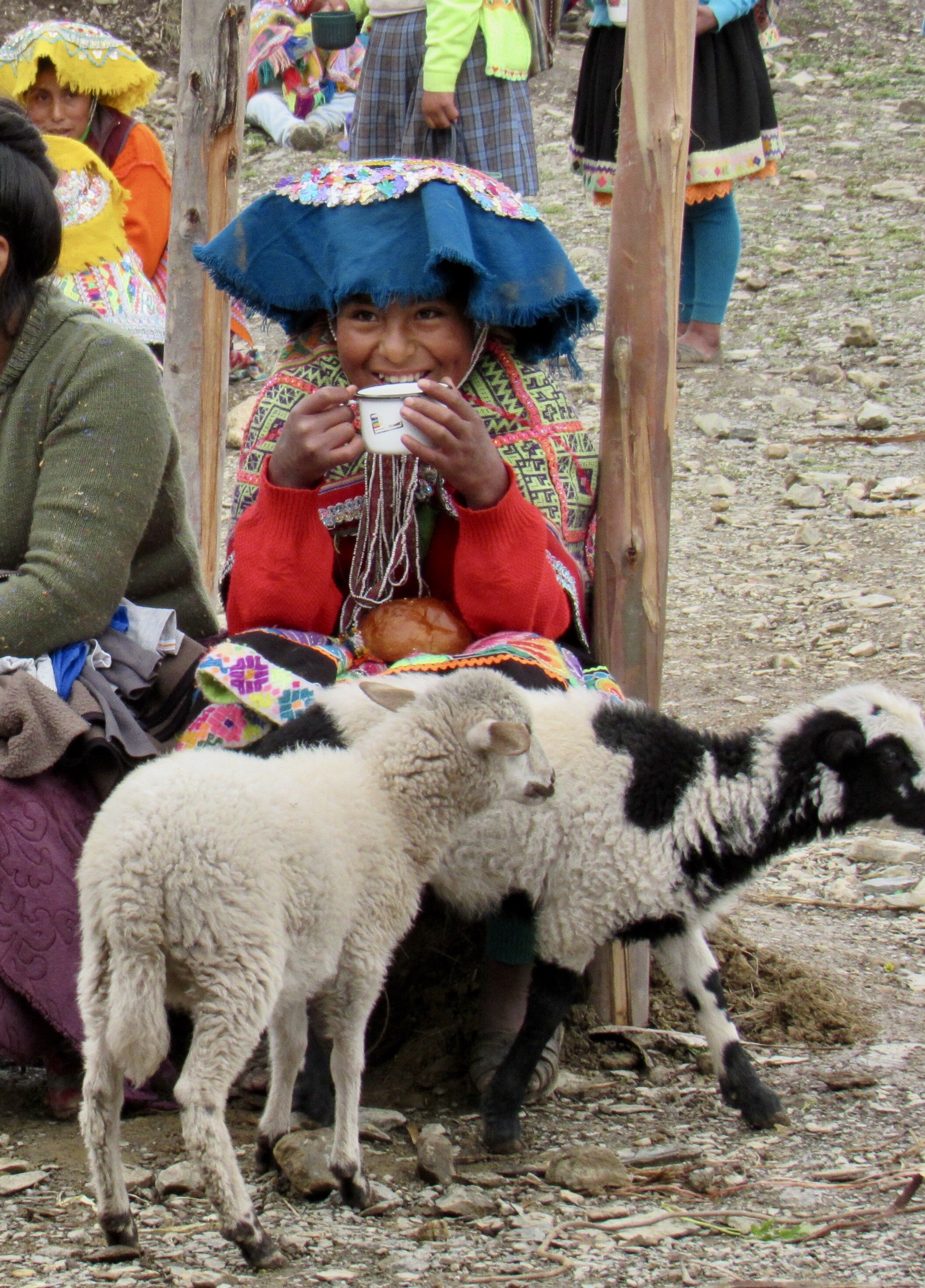
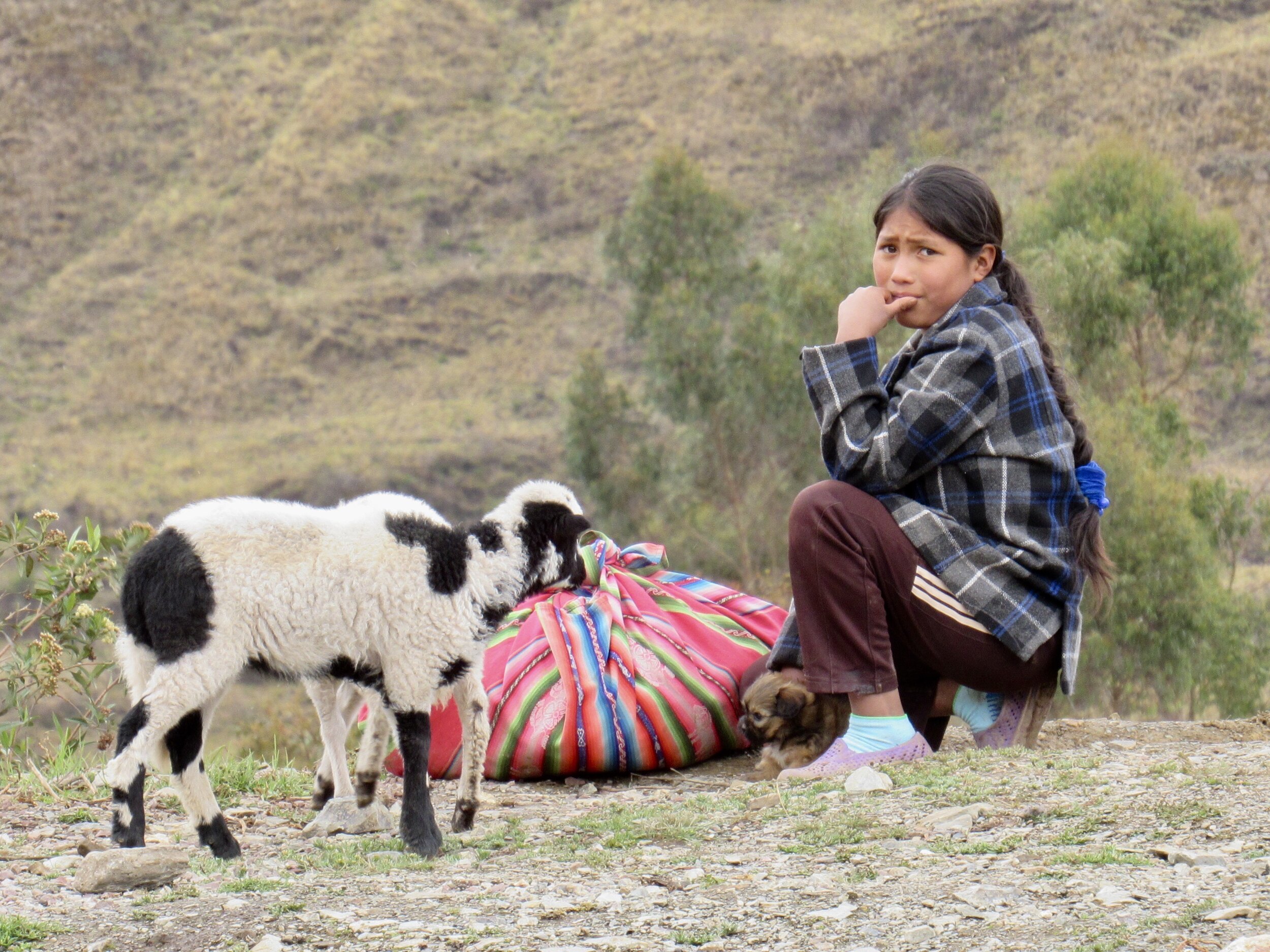
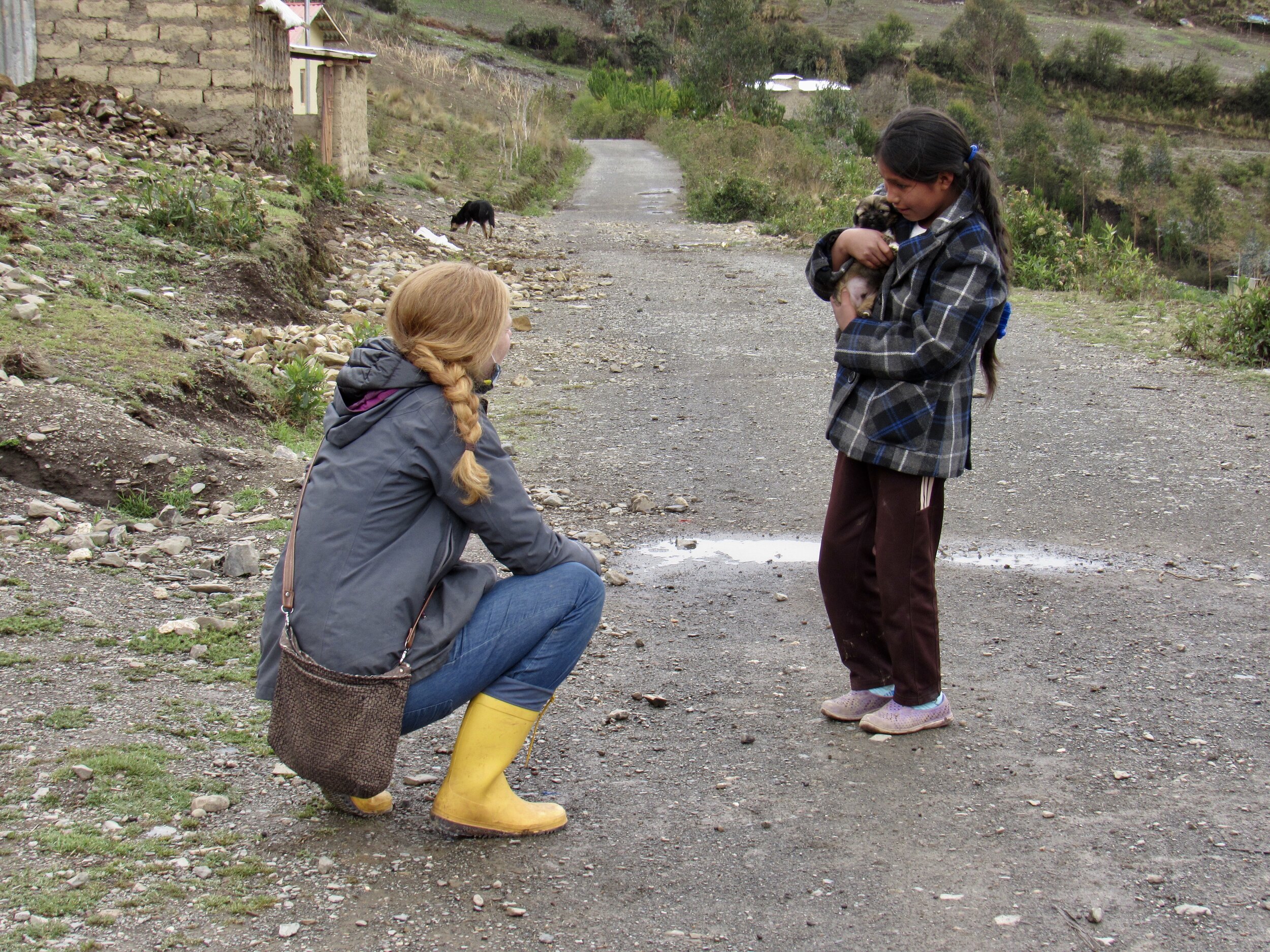
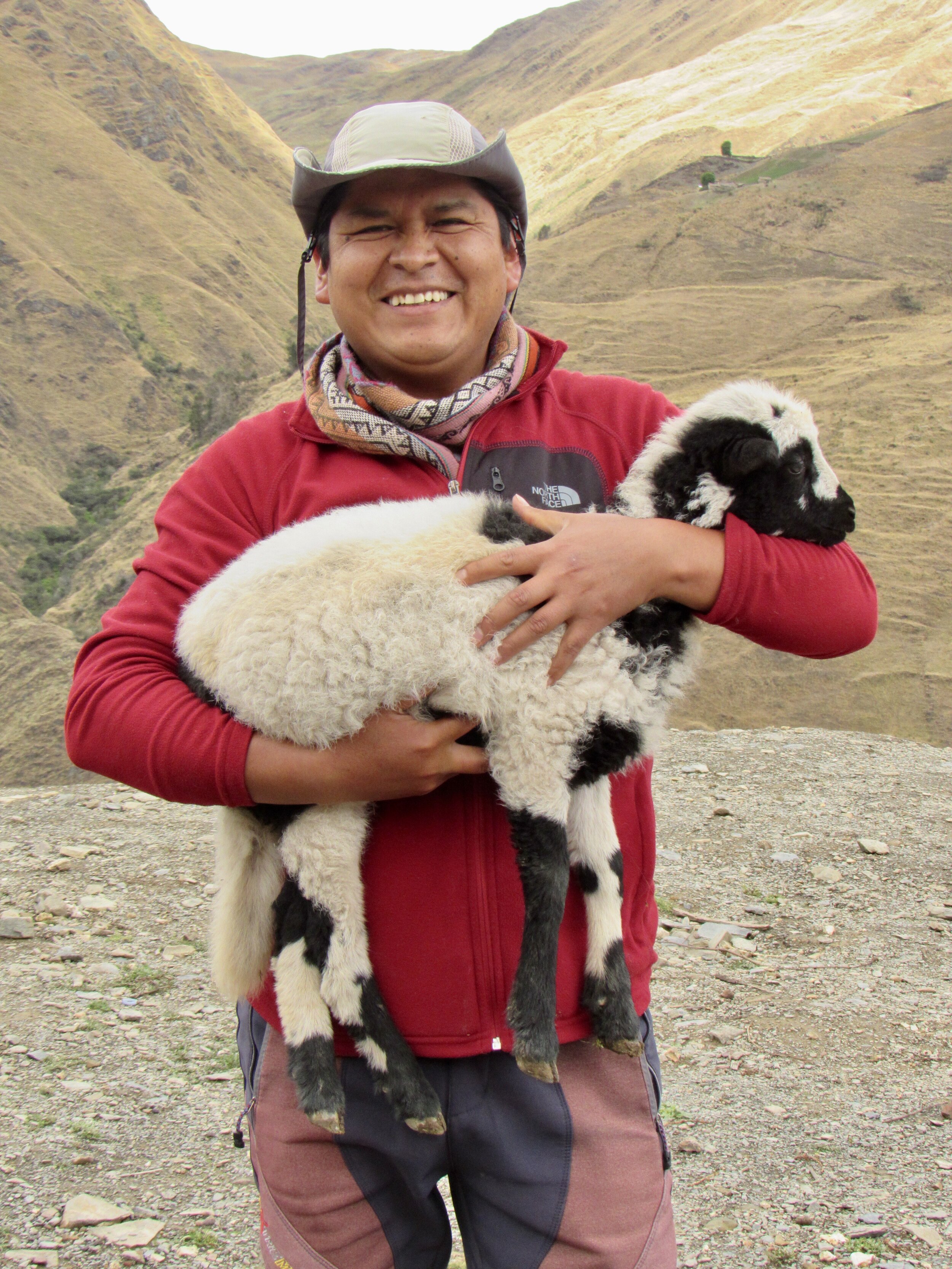
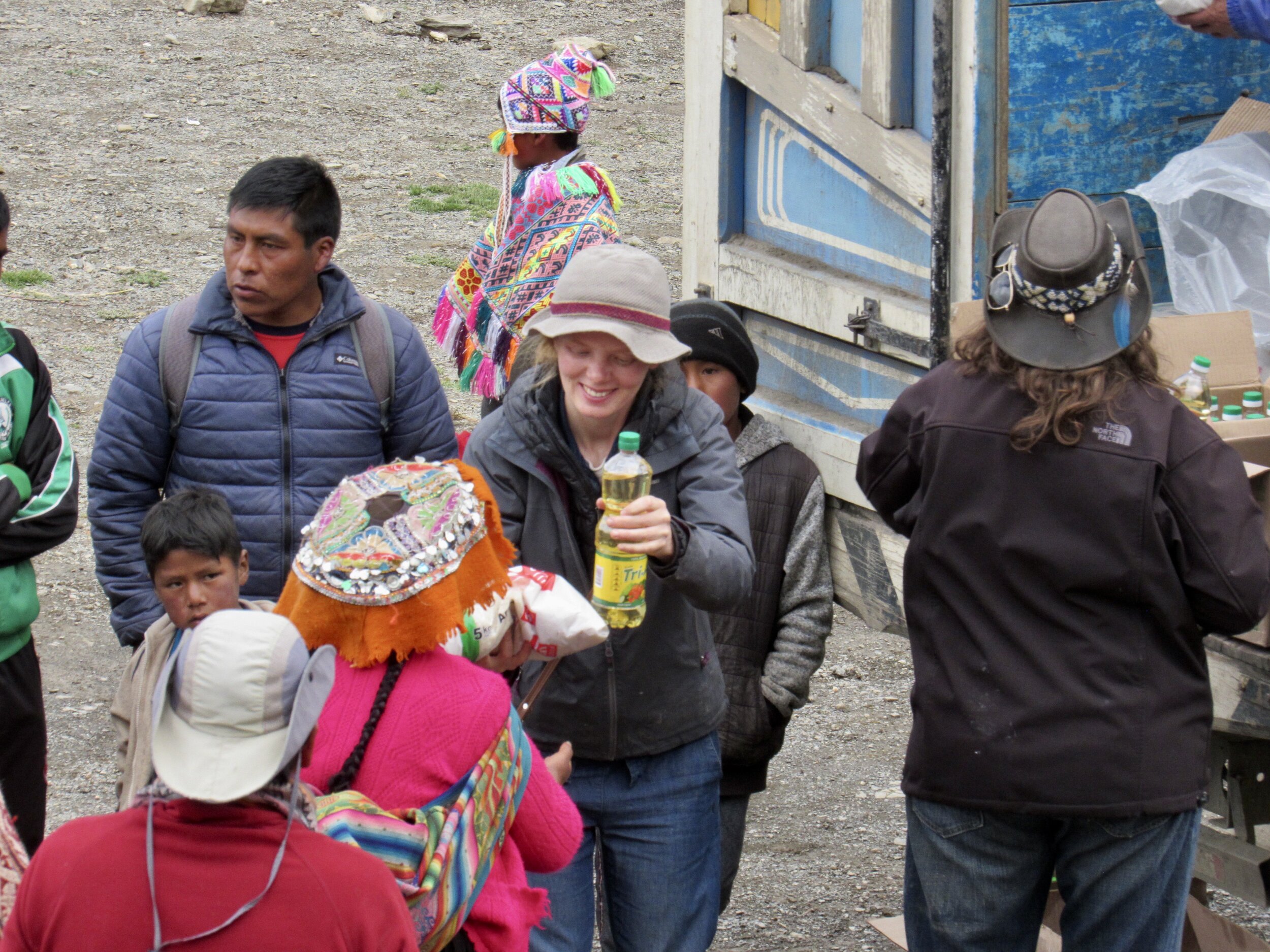
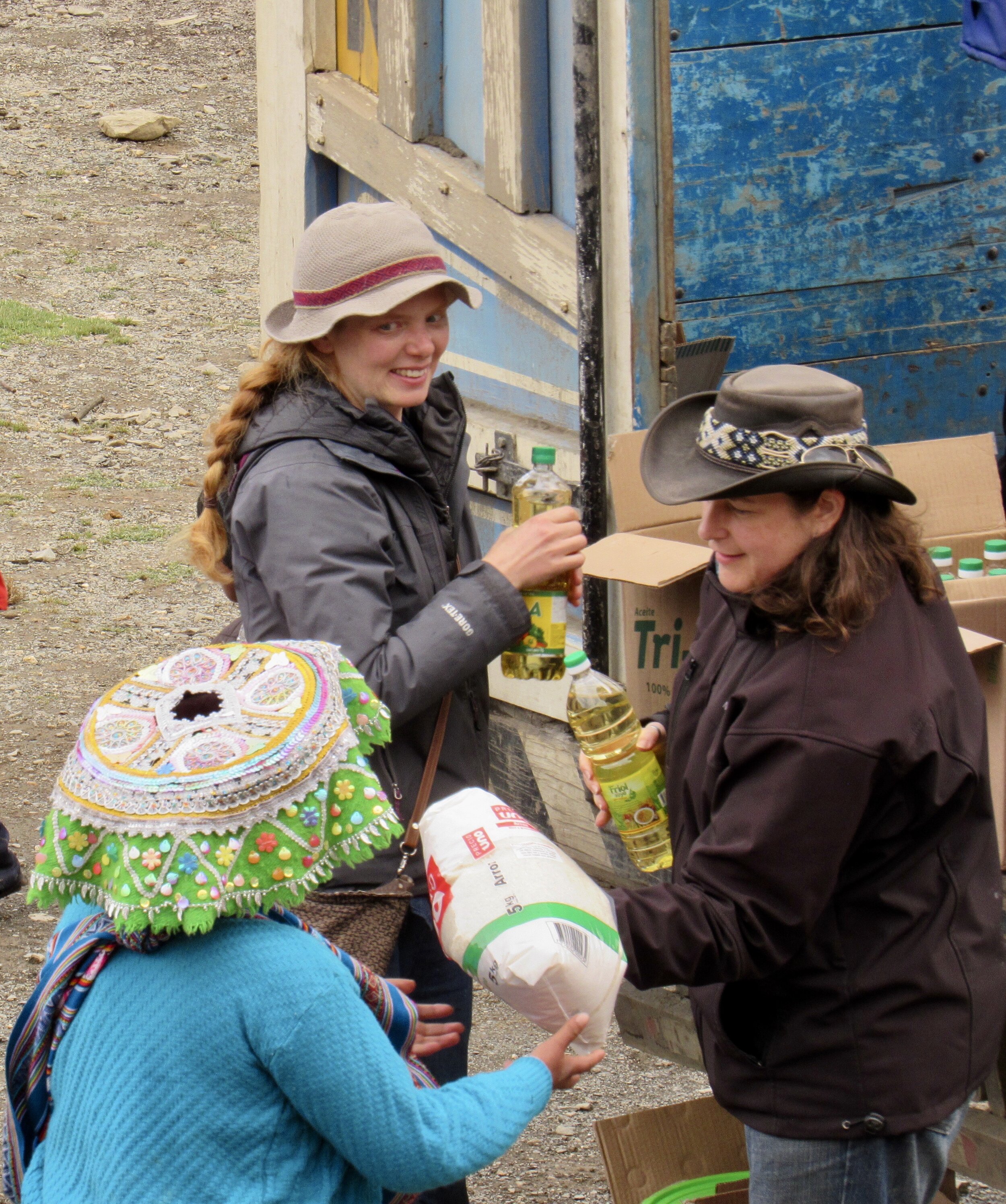
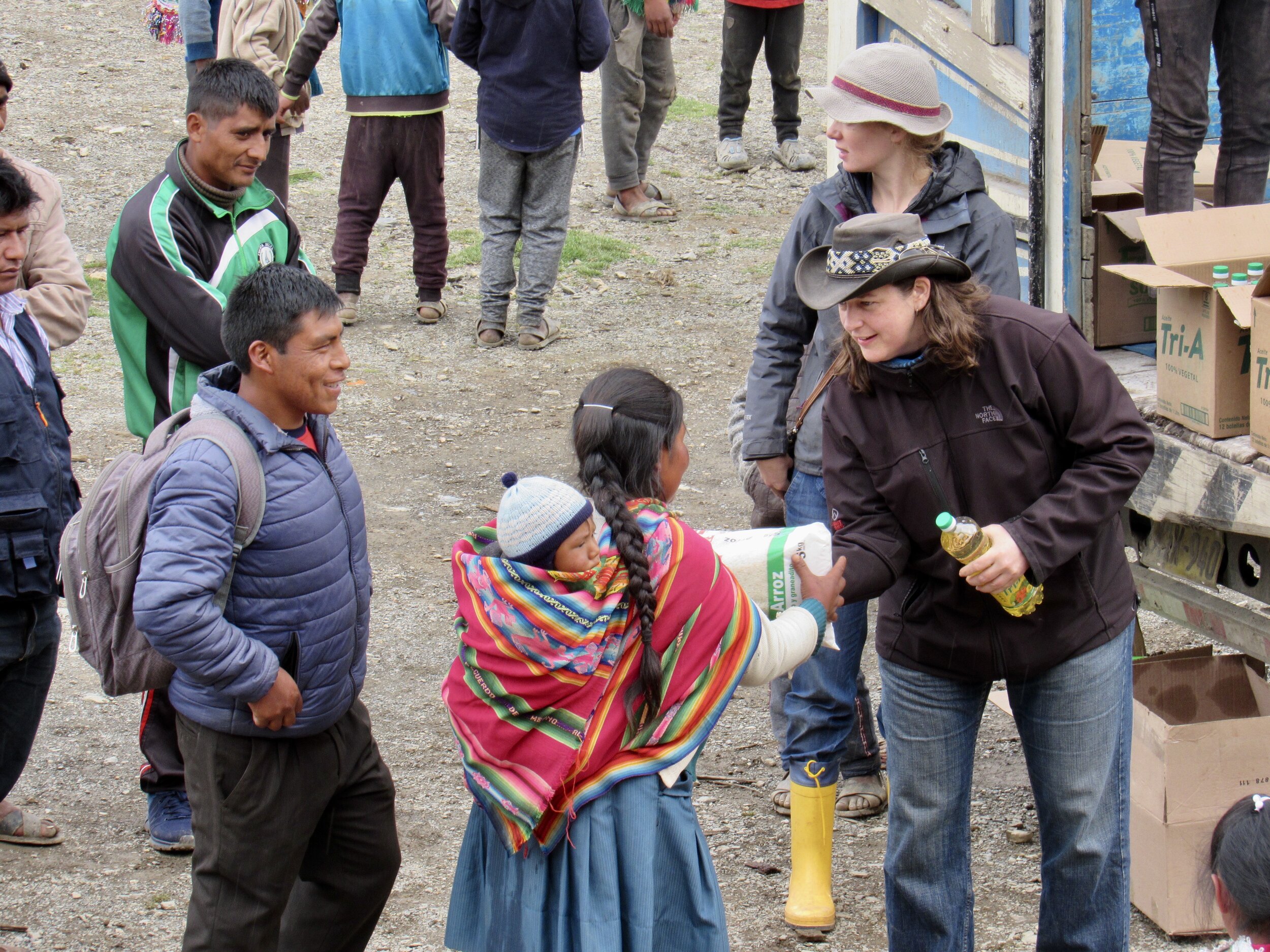
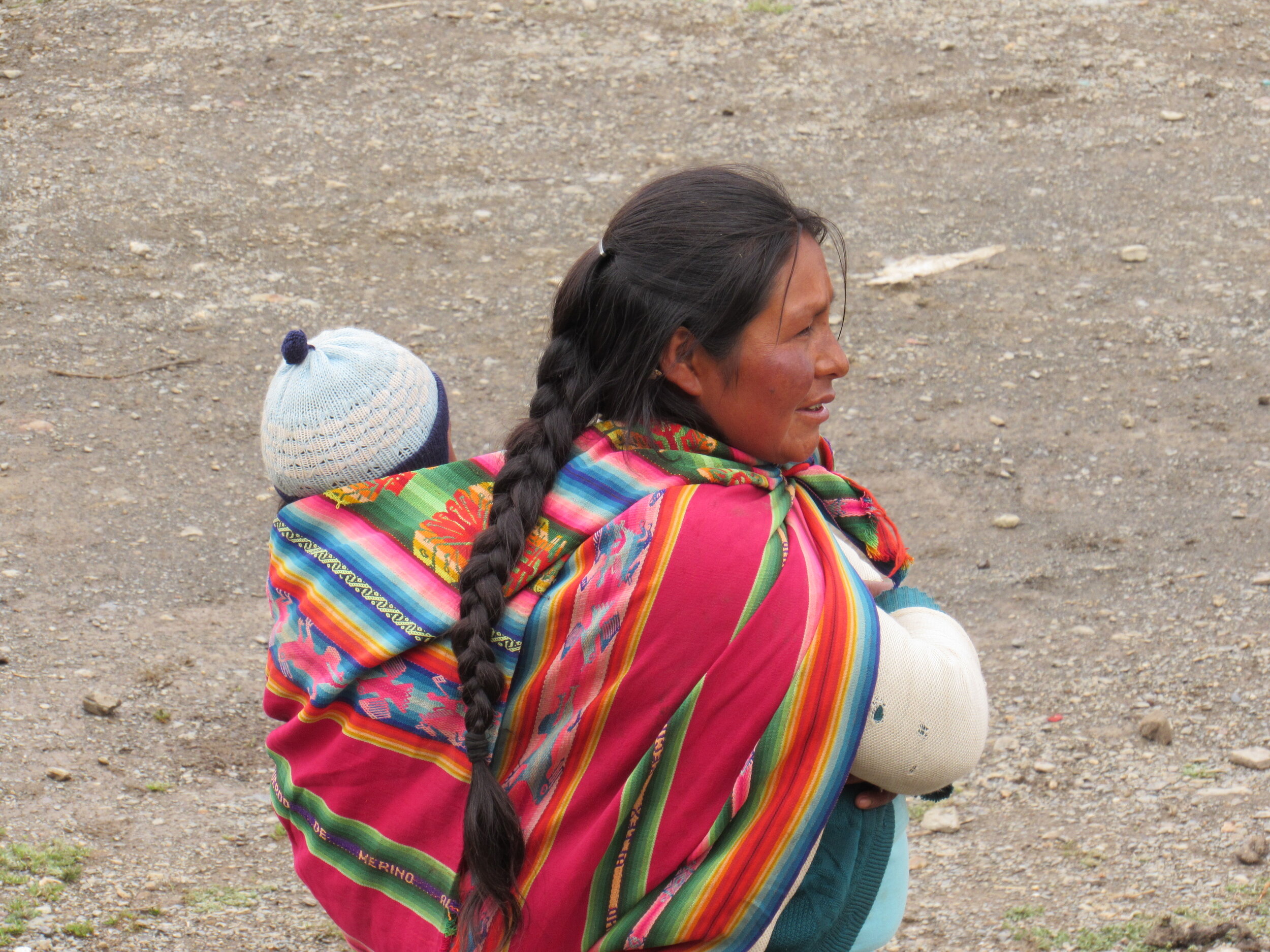
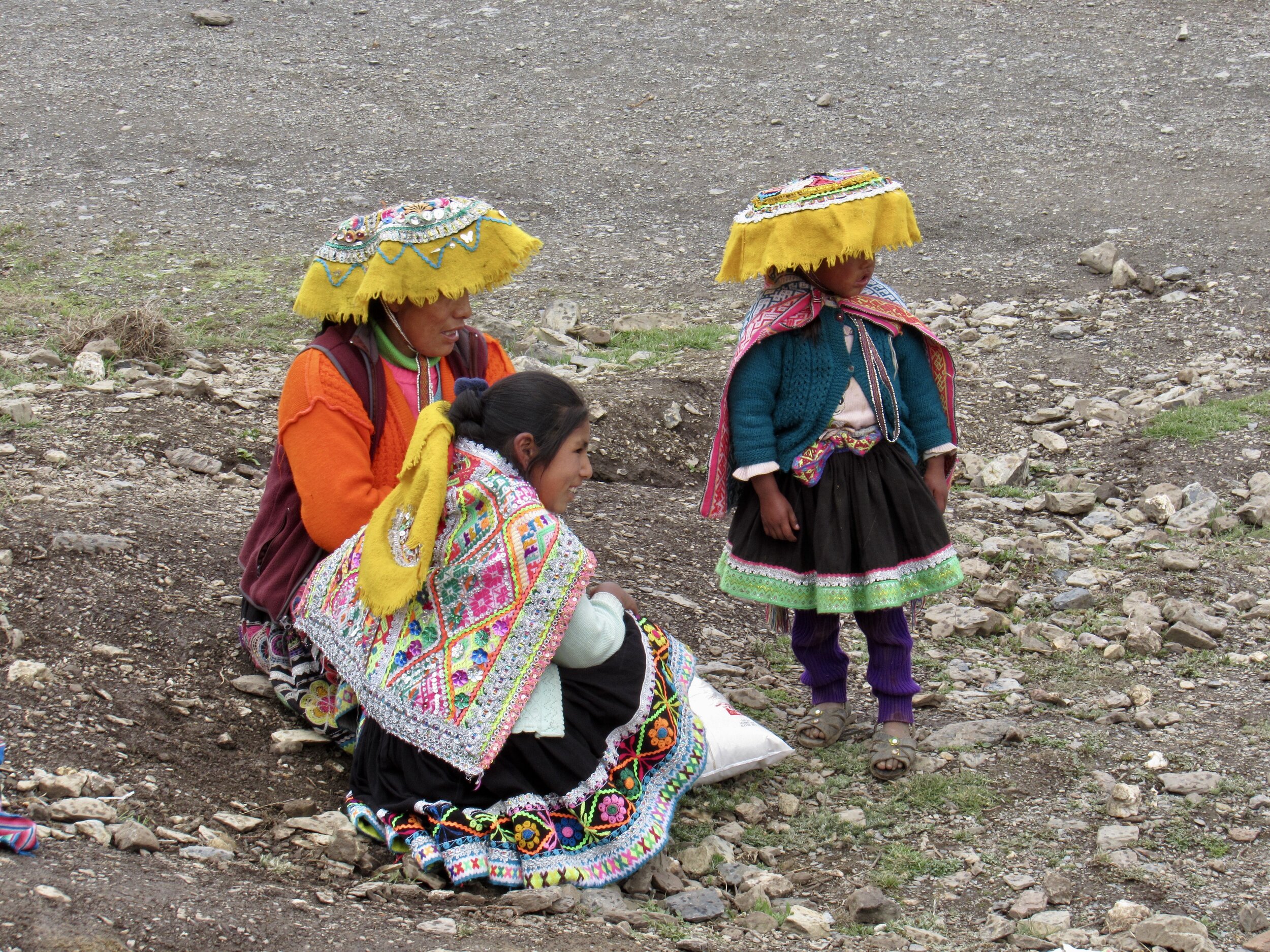
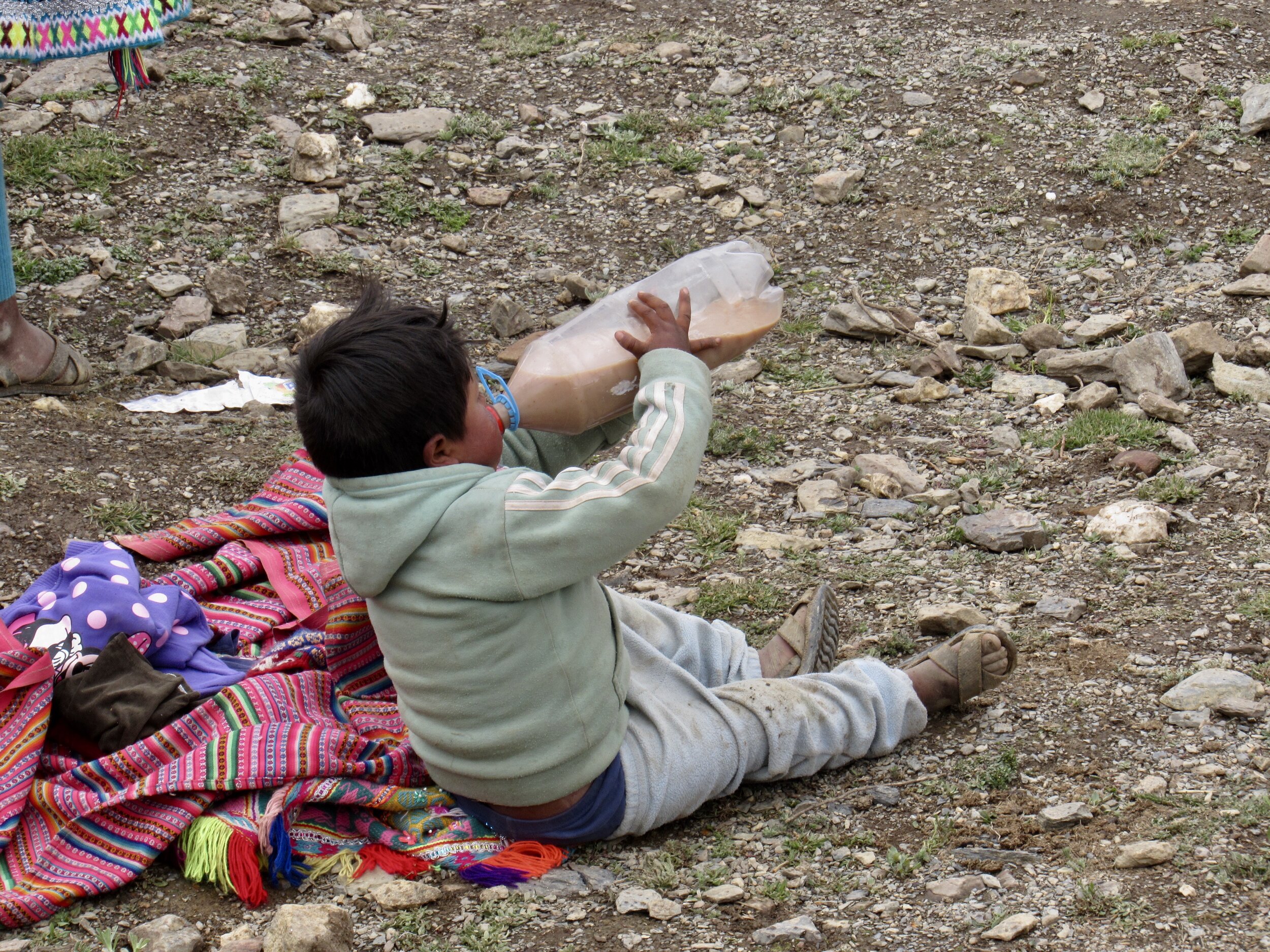
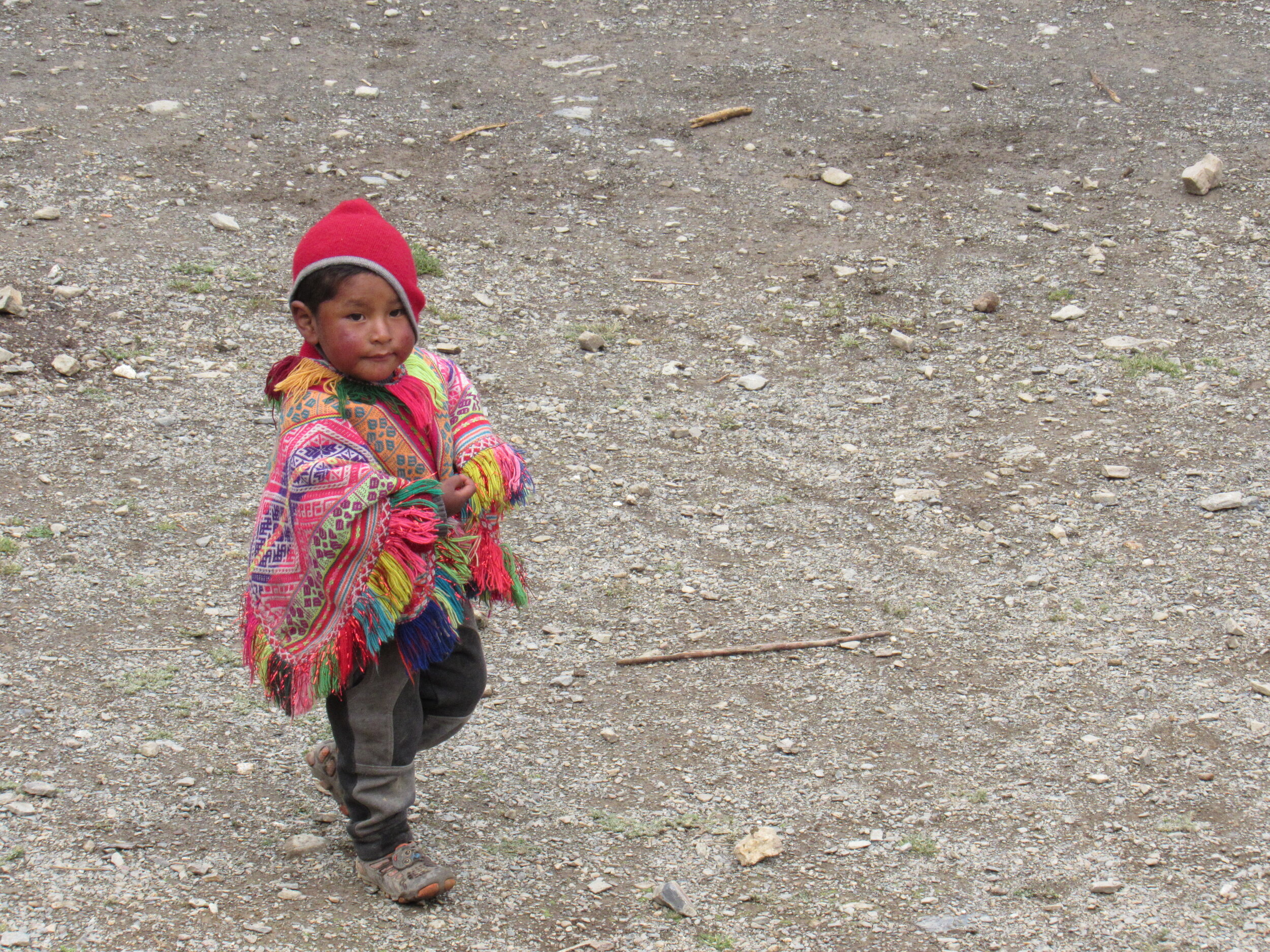
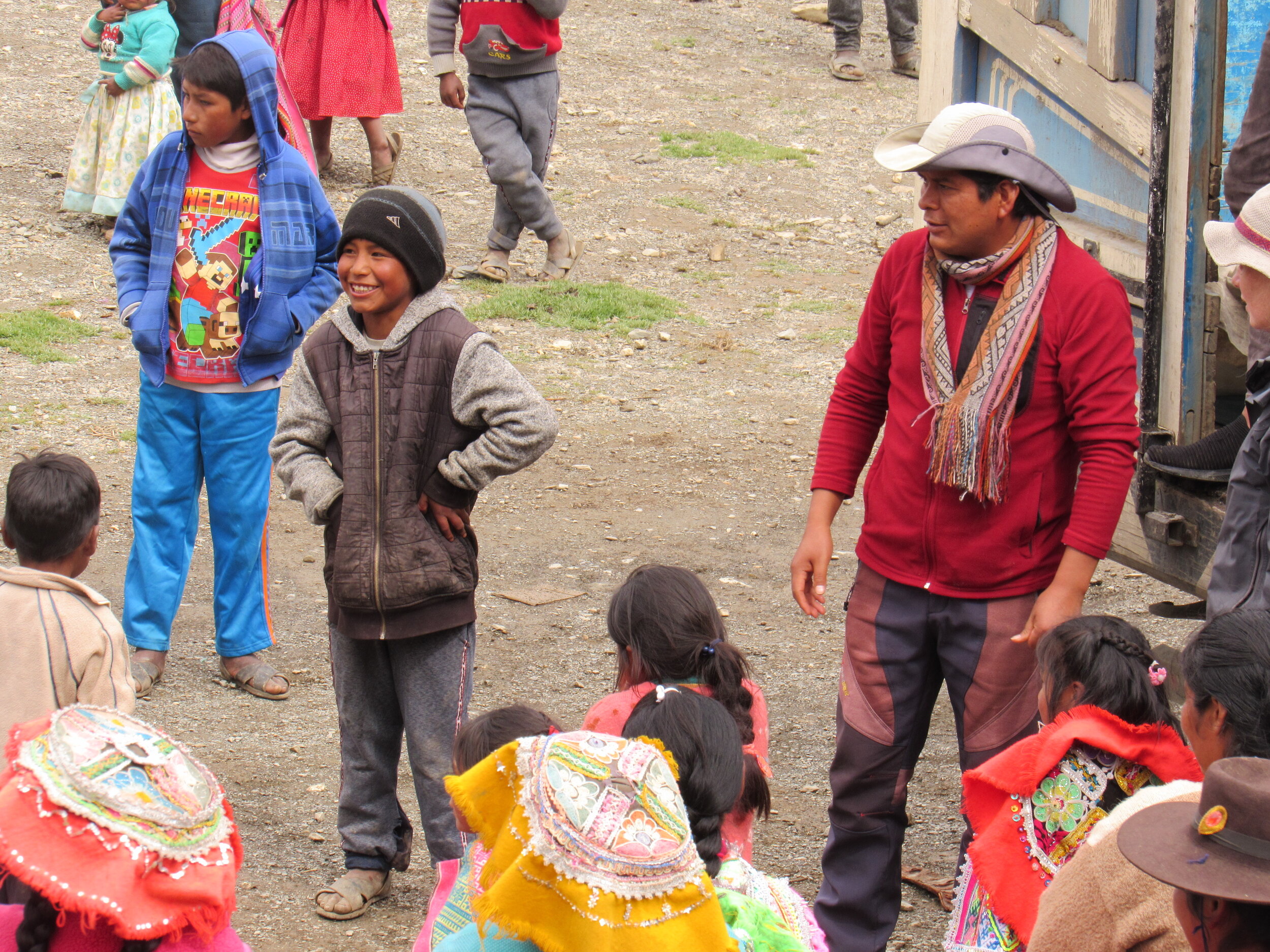
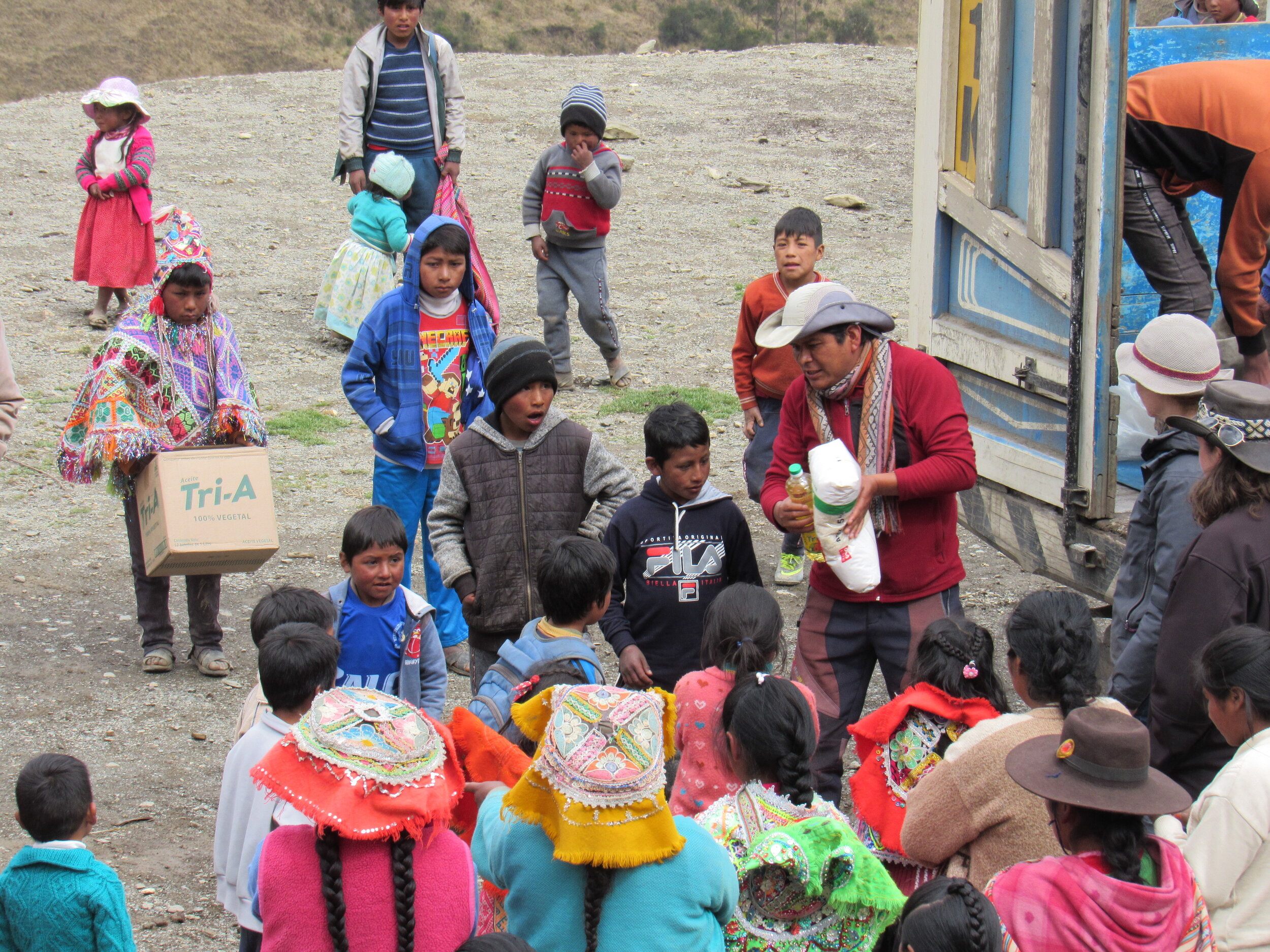

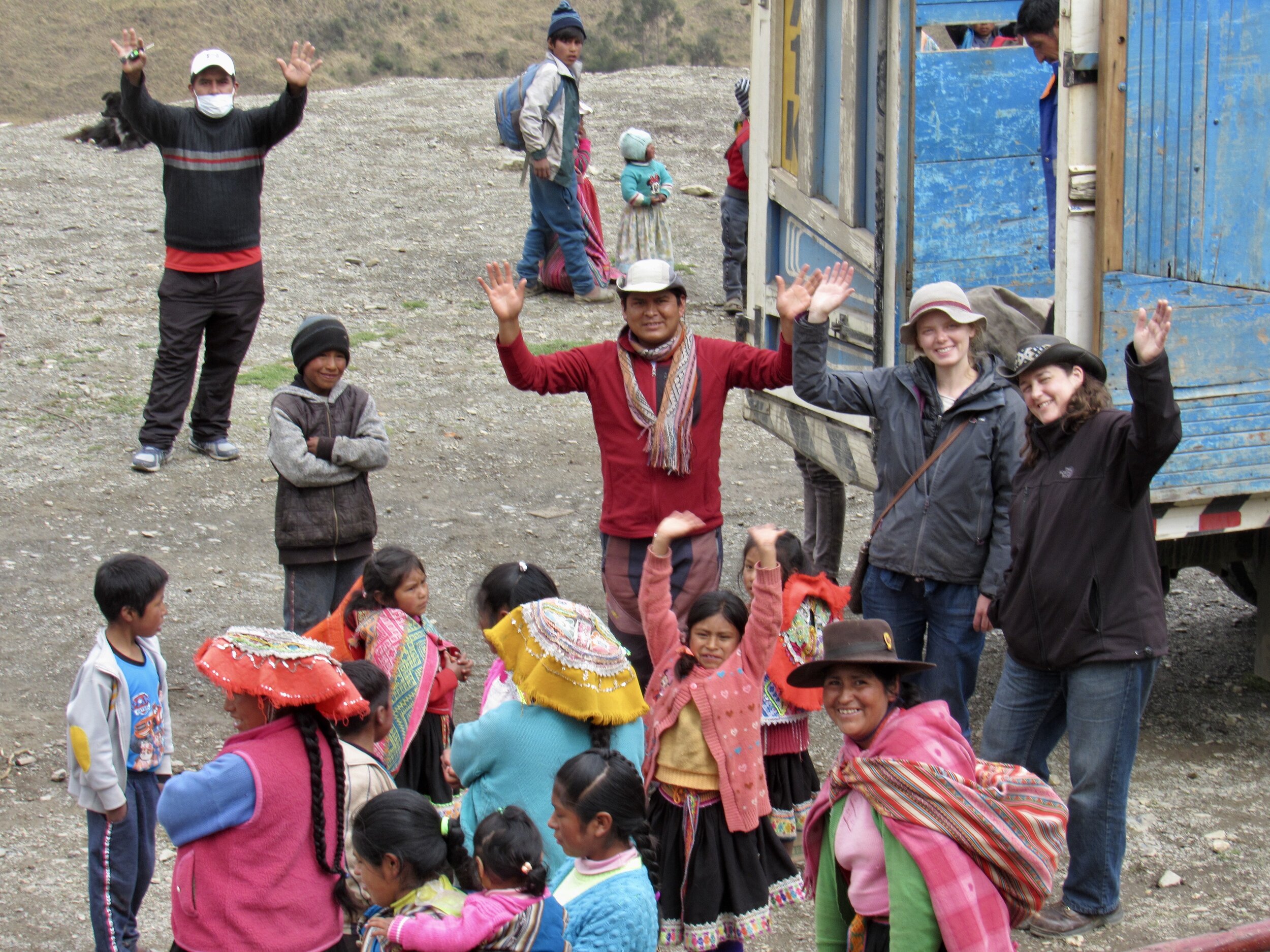
When we got to the second stop, Airepampa, Elio informed us that this would be the only other stop, so we handed over all of the remaining milk, sugar, cloves, cinnamon and bricks of cacao. This time we distributed the clothes first, which probably worked better. Some kids put them on immediately and some tucked them away in the layers they were already wearing. All of them made sure that they had two free hands for hot chocolate and panettone.
This community had prepared what they called “cariño” for us and invited us to enter one of the adobe buildings near where we had done the chocolatada. Sarah, Linda, Auqui and I were served boiled new crop potatoes and each of us a quarter of a roast guinea pig. As a vegetarian, I happily put my guinea pig piece on Auqui’s plate and stuck with the potatoes.
I complimented their choice of three of my favorite potato varieties: maqtillo, peruanita and compis. They apologized a bit, saying that the crop was very poor because the rains were a full two months late. Most of the potatoes that they had planted in August dried up and died before they could produce anything. The rains finally started this week, but for many farmers it was too little, too late. They also told us that their alpaca had suffered from the drought. Most of the alpaca who gave birth in the past two months had stillborns because they didn’t have enough grass to eat. Plants at this altitude are small and scarce, so when the rains didn’t start in mid-September, there was very little left for their alpaca to eat.
After lunch, I asked Auqui to interview Gregorio, the community president, and Elio. I’ll work on making a video of today’s event and post that on the Covid Relief Project YouTube channel asap. Before we left Airepampa, we distributed the rice and oil to every family, but still had a surprising amount left over. I was hoping that when we drove back through Ttio Grande we would be able to distribute more, but it started raining hard as soon as we were back on the road. When we got to Ttio Grande the rain was coming down in solid sheets and we didn’t see anybody outside. I’m a little sad that we didn’t distribute anything, since this is definitely one of the poorest communities that we’ve visited, if not the poorest. Still, this is the first of at least five chocolatadas, and I know that there are lots more needy families that we’ll see between now and Christmas. It’ll be okay to save what we have leftover for next Saturday.

